art history midterm
1/44
There's no tags or description
Looks like no tags are added yet.
Name | Mastery | Learn | Test | Matching | Spaced |
|---|
No study sessions yet.
45 Terms
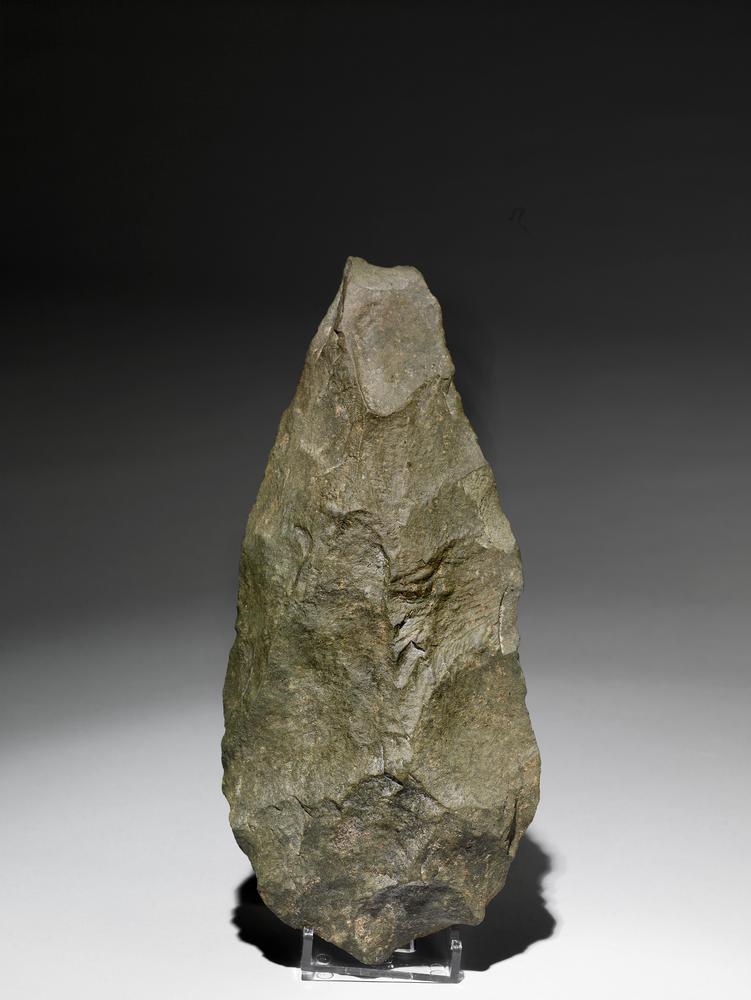
Artist: unknown
“Title:” handaxe
Date: 1.2 MYA
Location: Tanzania
Details:
Tool or art?
Indicates development of language
Functional but aesthetic like a signature
Similar to those later used by homo sapiens
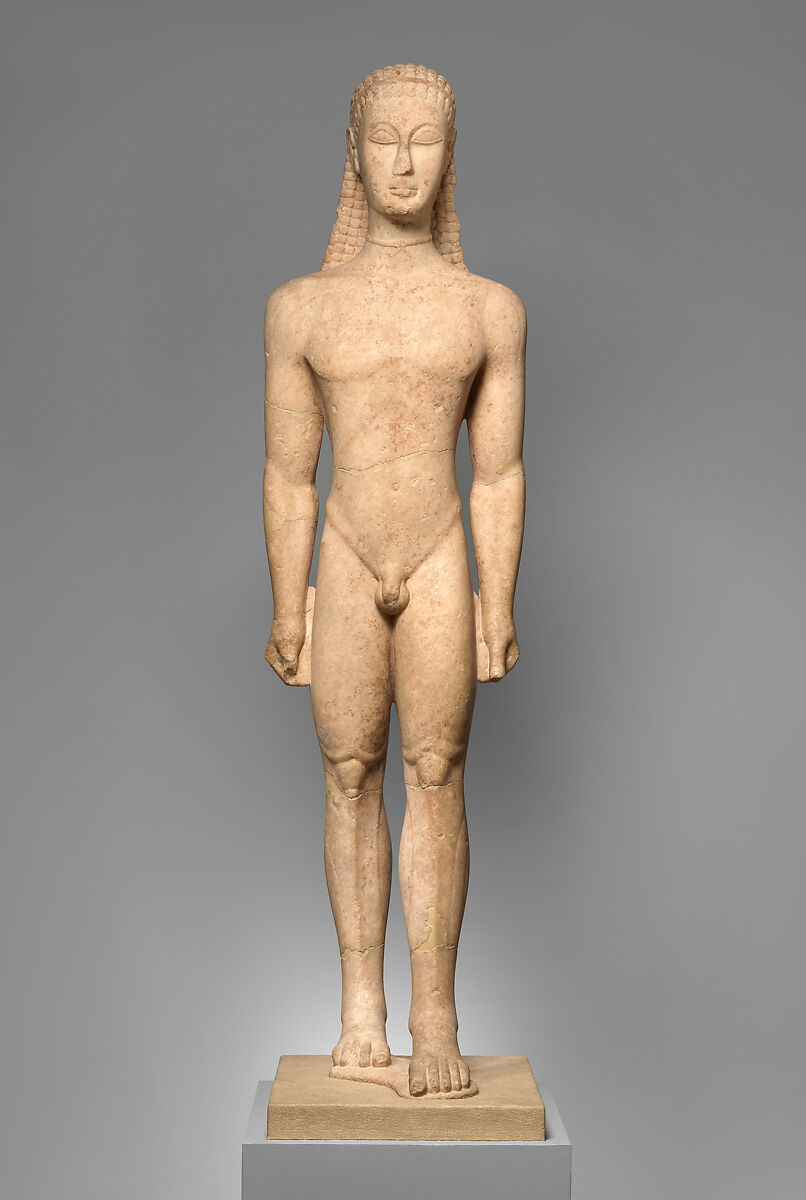
Artist: unknown
“Title:” Marble statue of a kouros
Date: 590-580 BCE (Archaic)
Location: Greece
Details:
Nude sculpture of young man
Probably a funerary monument for a boy in a rich community
Idealized physique
Archaic smile signifies status, not joy
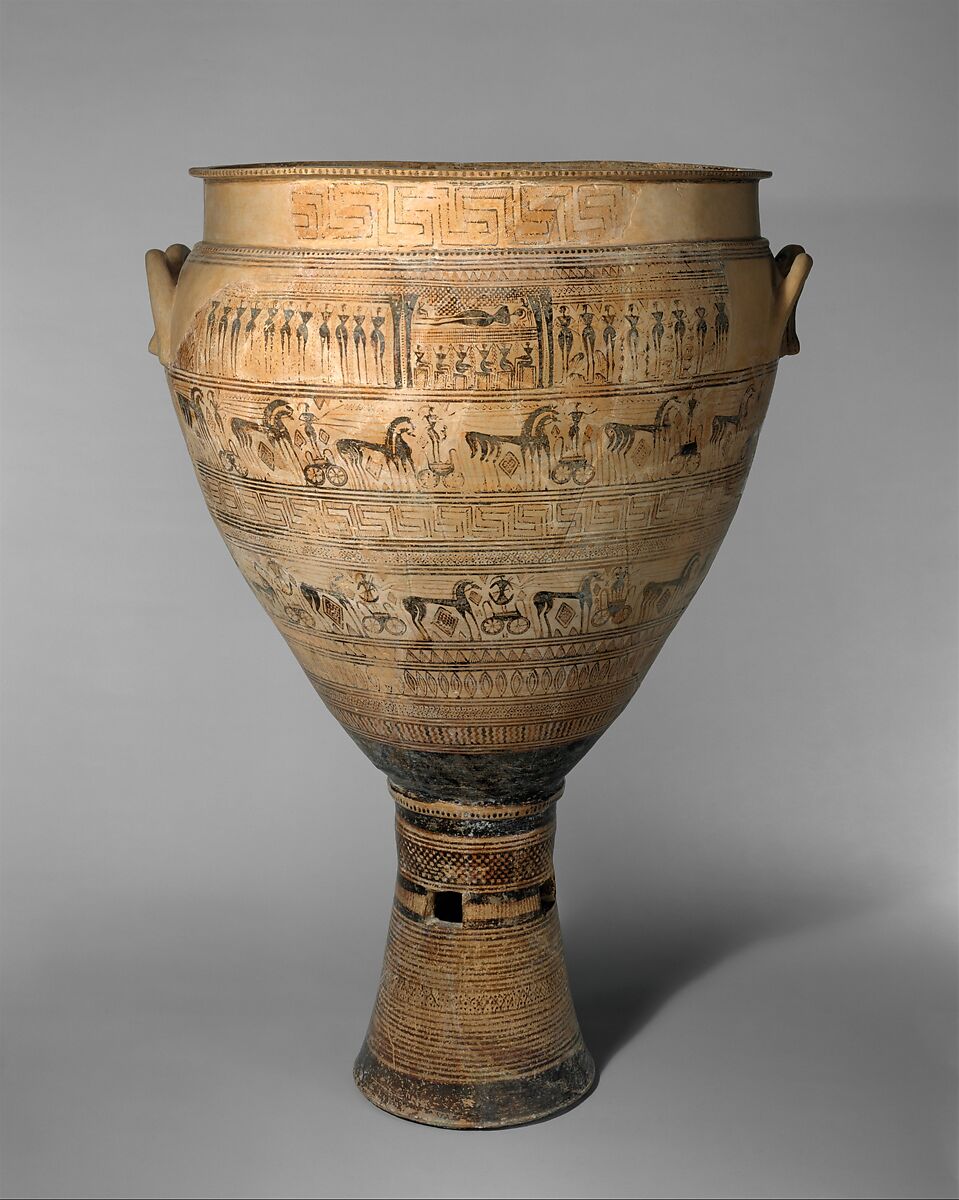
Artist: Trachones workshop
“Title:” Terracotta krater
Date: 725 BCE (Geometric)
Location: Greece
Details:
Geometric period/dark age, revival of politics, art, and writing
Living after superior, hero ancestors
Funeral of a basileos (king/emperor)
Surrounded by mourners, geometric border
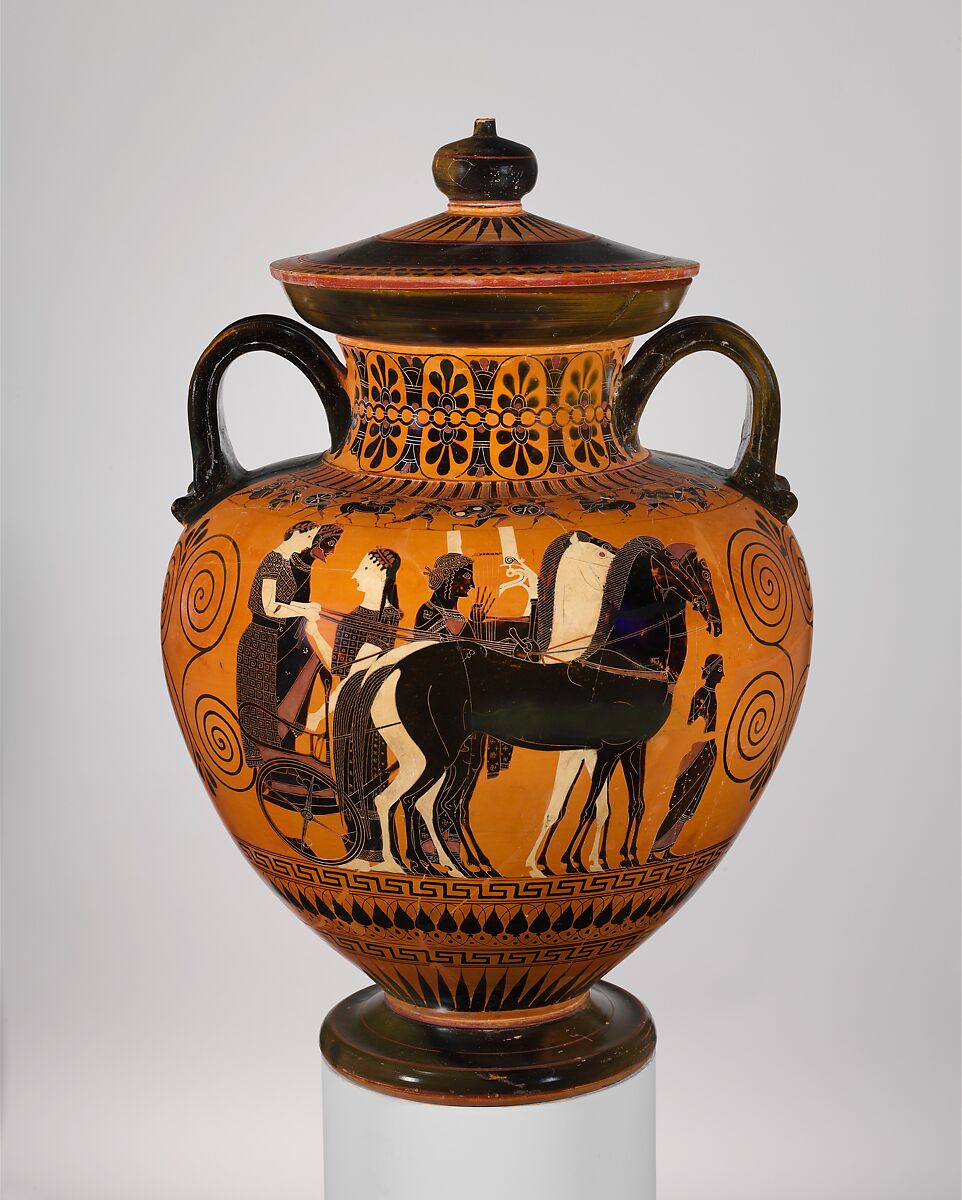
Artist: Exekias
“Title:” Terracotta neck-amphora with lid and knob
Date: 540 BCE (Archaic)
Location: Greece
Details:
Exekias one of the earliest Athenian potters to sign his name
Idealized figure without psychological depth or naturalistic interest
Reference to Persephone myth?
Vase in shape of storage jar but found in Italian tomb
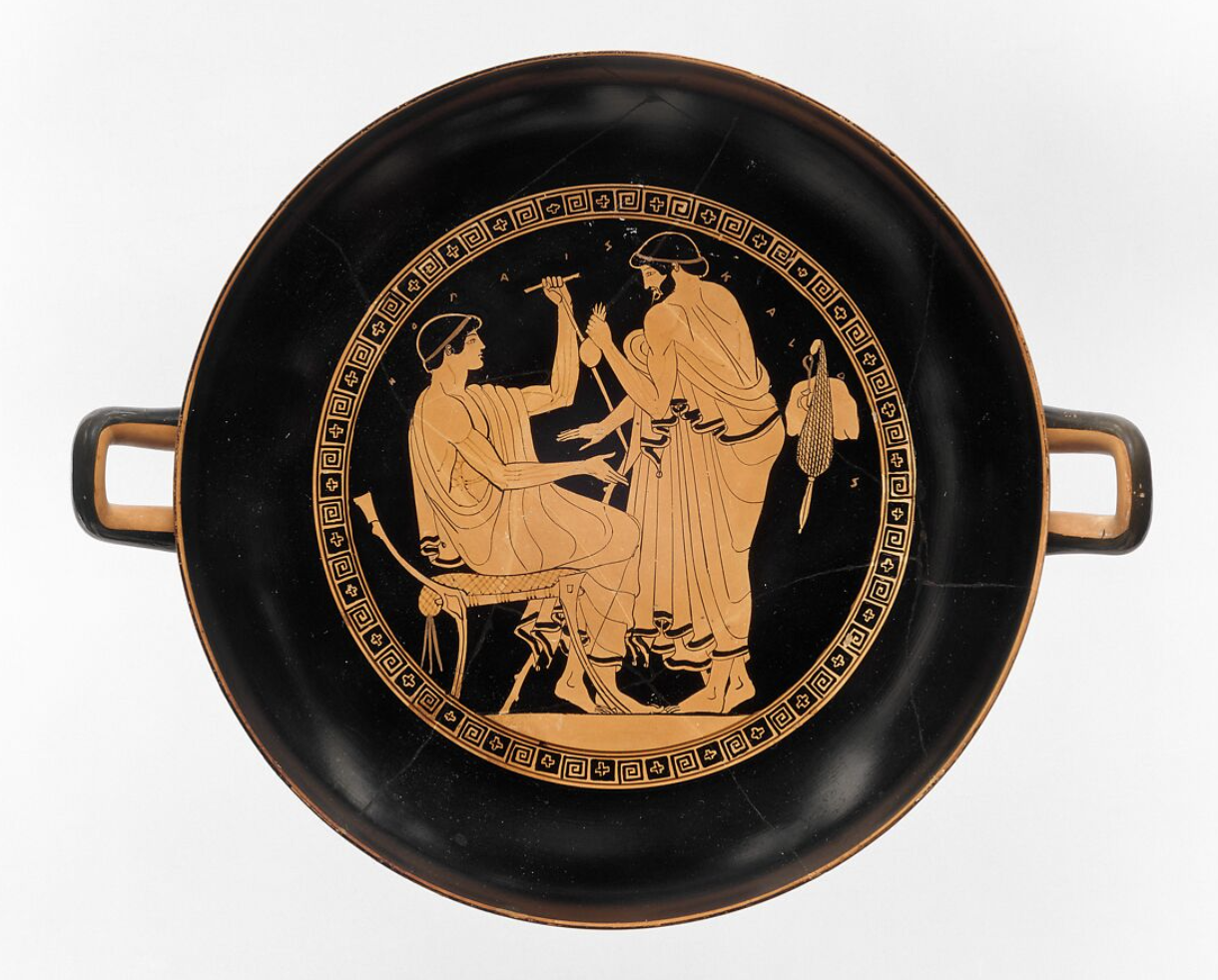
Artist: Douris
“Title:” Terracotta kylix
Date: 480-470 BCE (Classical)
Location: Greece
Details:
Used to drink water/wine mixture
Often have a joke revealed on inside after wine is drunk
Symposium: elite men eat, drink, intellectualize, and fuck
Courtship gift (suitor → adolescent boy)
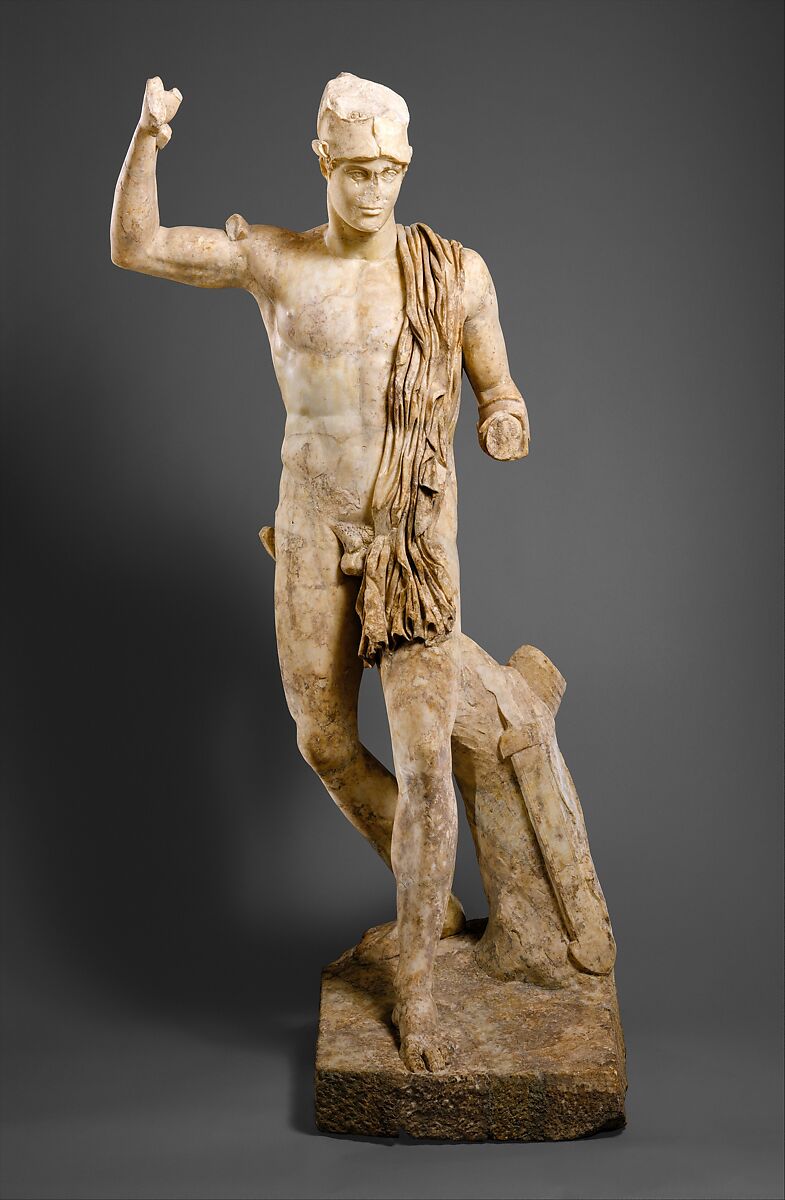
Artist: unknown
“Title:” Marble statue of a wounded warrior
Date: 150
Location: Rome?
Details:
Copy of classical (5th century) Greek statue
Ideal yet naturalistic physique
Story of Protisilaus (first to die at Troy) → warrior’s death
Heroic nudity → wound so small as to be nearly invisible
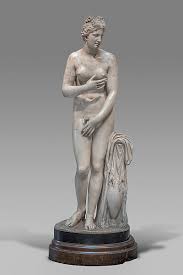
Artist: Praxitoles (og)
“Title:” Statue of the Capitoline Aphrodite
Date: 00s-100s
Location: Rome?
Details:
Ancient scandal (viewer walking in on Aphrodite)
Ideal of modesty, concealment (covers self), calls attention to genitals in doing so
First depiction of a Greek goddess naked
Literal male gaze prioritized
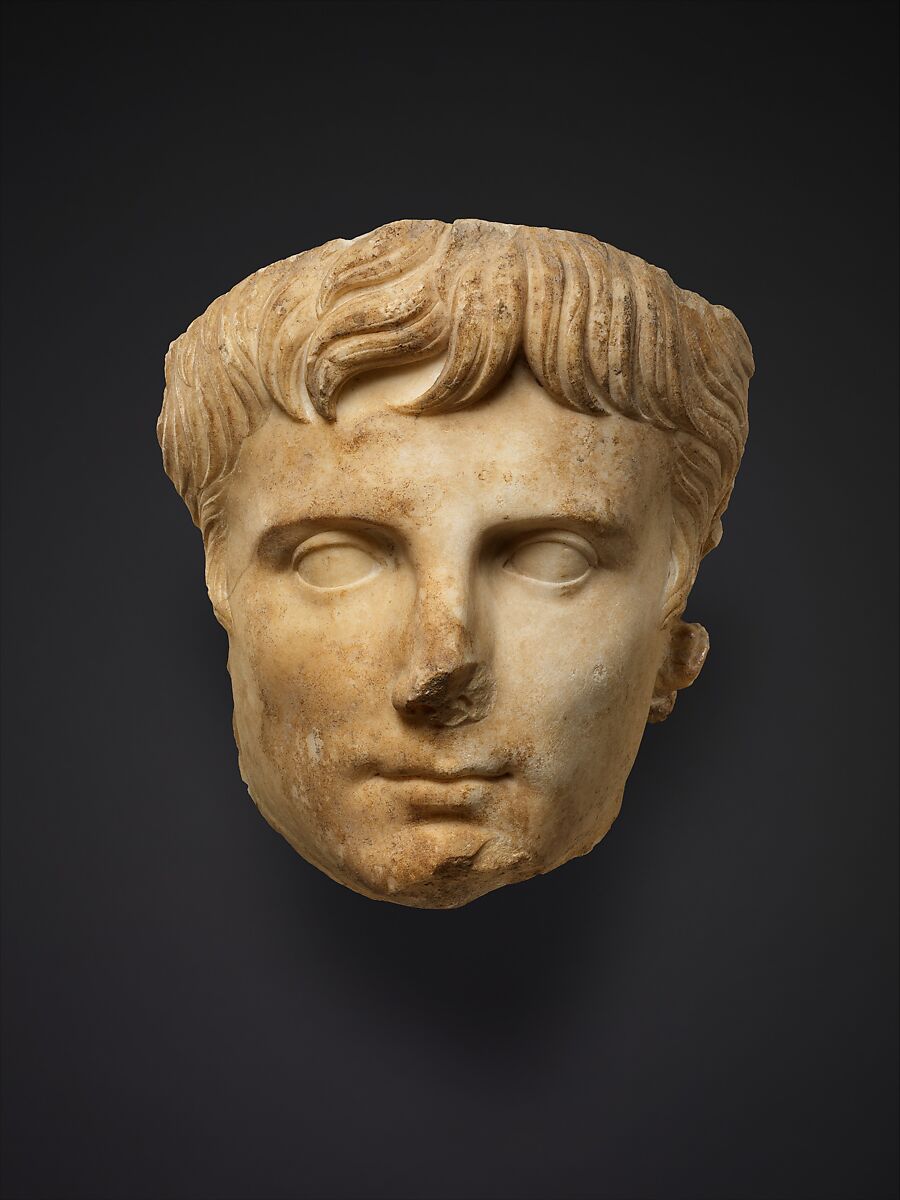
Artist: unknown
“Title:” Marble portrait of the emperor Augustus
Date: 14-37
Location: Rome?
Details:
Augustus = first emperor of Rome
Couldn’t use Verism or Hellenistic → settled on Classical Greek
Honors ancestral customs while evoking something new, too
Comma-shaped locks became the norm for Roman portraiture
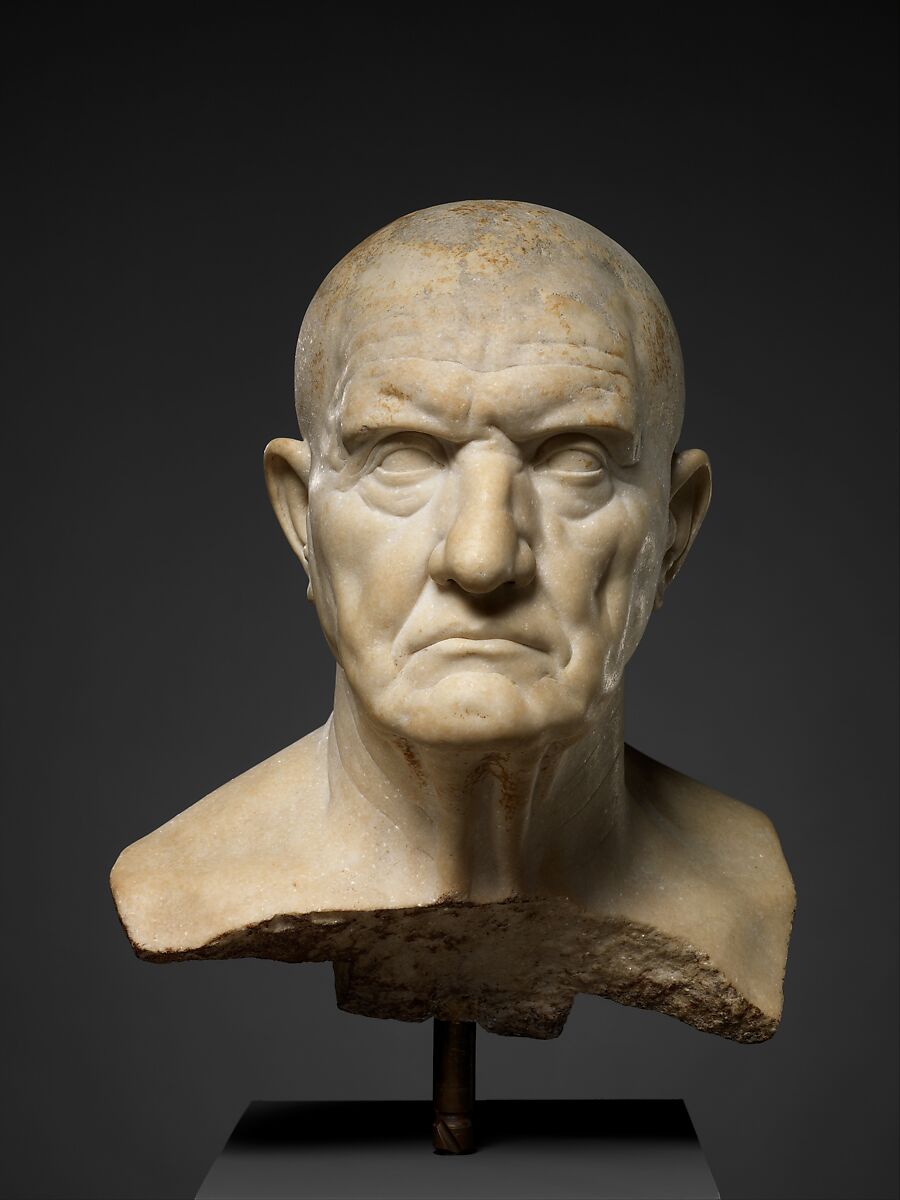
Artist: unknown
“Title:” Marble bust of a man
Date: mid-00s
Location: Rome?
Details:
Veristic
Political point: experienced and trustworthy politician
Made in the imperial period
Family history
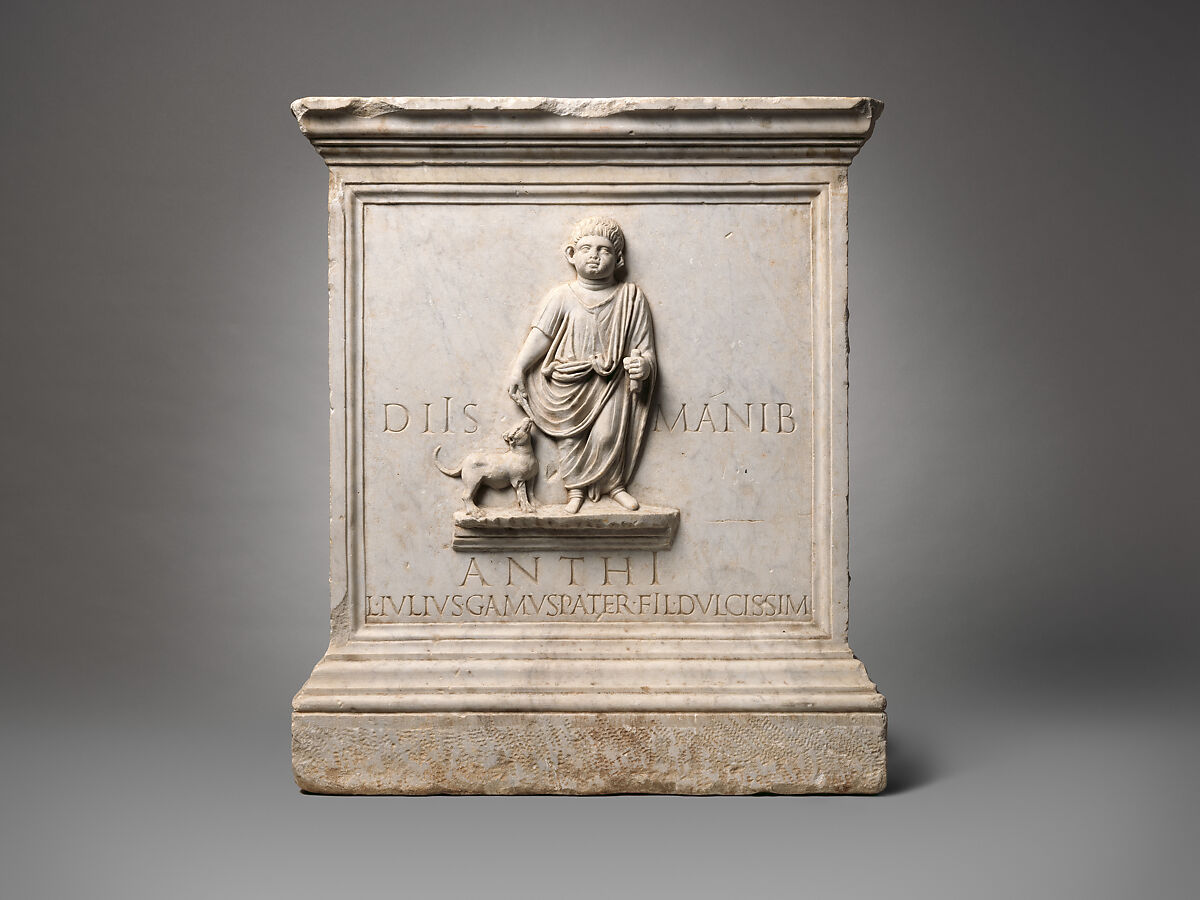
Artist: unknown
“Title:” Marble funerary altar
Date: first ½ of 00s
Location: Rome?
Details:
Example of increasing Roman interest in childhood
Father mourning a boy
Dog icon signifies loyalty and love
Augustan-style portrait to represent the boy’s promise and potential
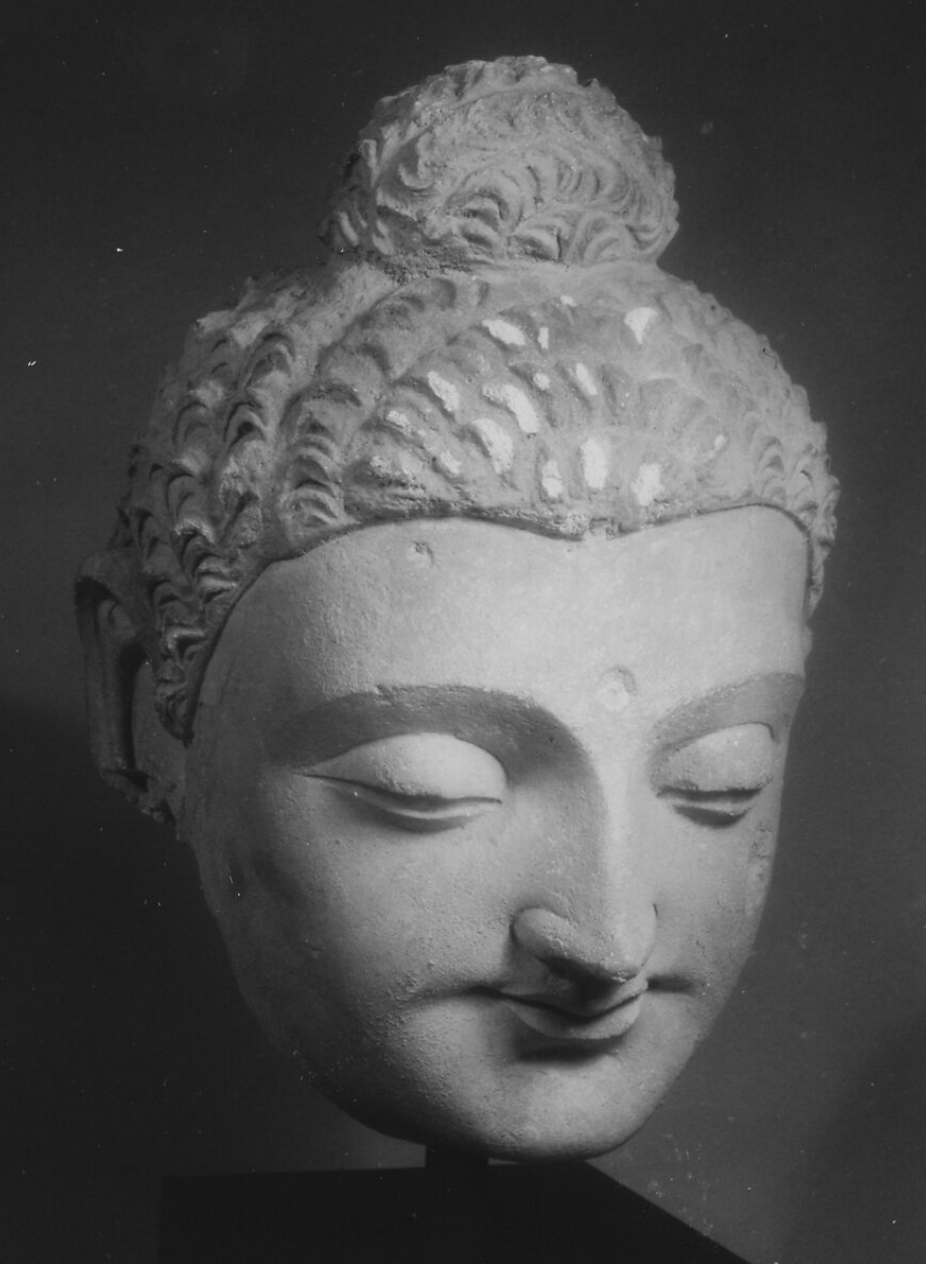
Artist: unknown
“Title:” Monumental Head of Buddha
Date: 350
Location: Pakistan
Details:
Early in tradition of representing the Buddha
Calm expression, half-closed eyes, open nostrils
Distended earlobes, ushnisha (bun), tuft between brows
Artist prioritized blank, tranquil expression
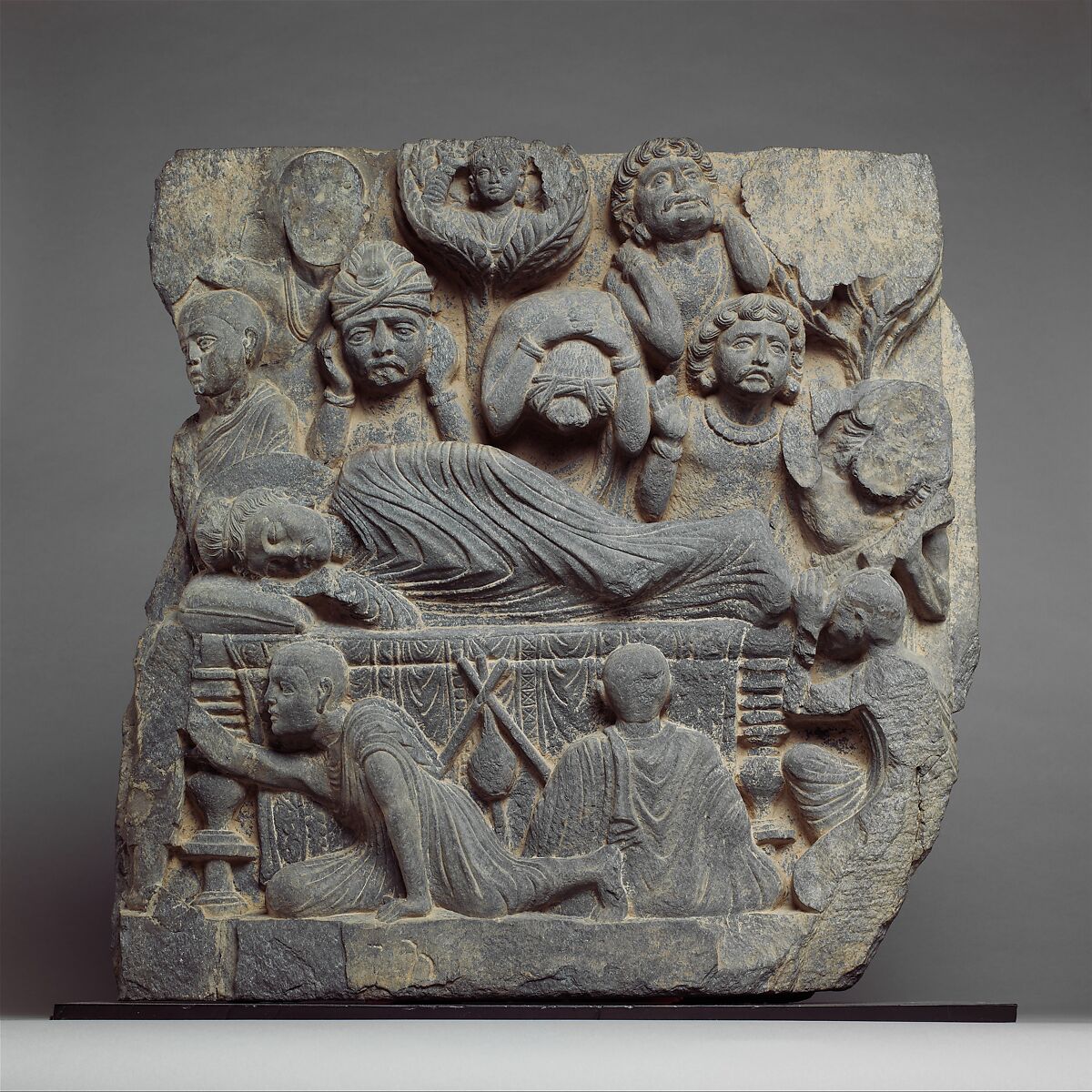
Artist: unknown
“Title:” The Death of the Buddha
Date: 200s
Location: Pakistan
Details:
Probably made to decorate a ritual court
Final disciple of Buddha (during his life) achieves nirvana
Facing away from audience → inexpressible so no shown facial expression
Triangular symmetrical pose
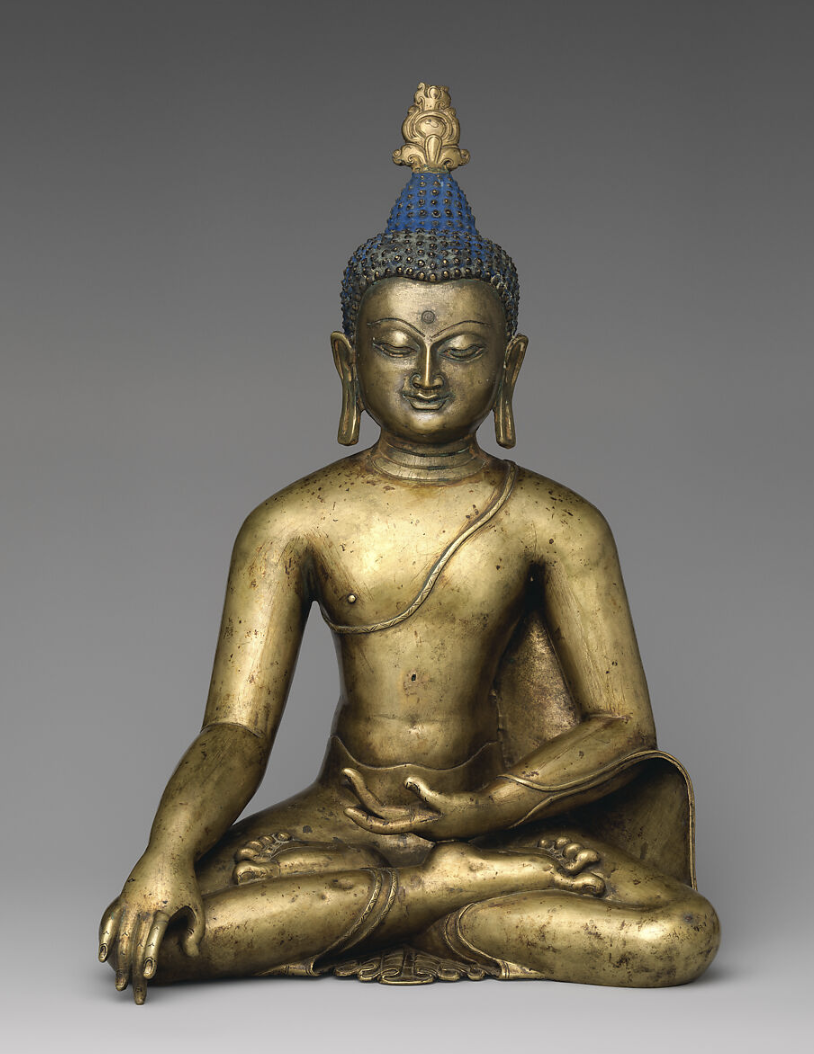
Artist: unknown
“Title:” Buddha Shakyamuni
Date: 1100s
Location: Tibet
Details:
Still calm, idealized torso, distended earlobes, tuft, ushnisha
One hand on floor: connection to Earth, meditation under tree
Elongated fingers & toes → naturalistic, evokes Buddha in life
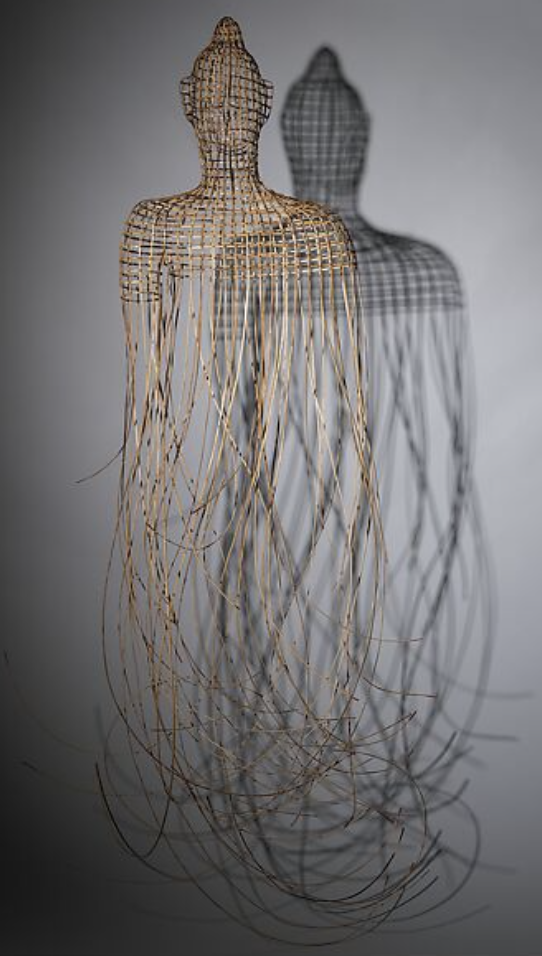
Artist: Sopheap Pich
“Title:” Buddha 2
Date: 2009
Location: Cambodia
Details:
Response to Khmer Rouge massacres in Cambodia
Destroyed Buddha statues, bloodstains
Ends dipped in red ink to evoke blood
Ushnisha & long earlobes
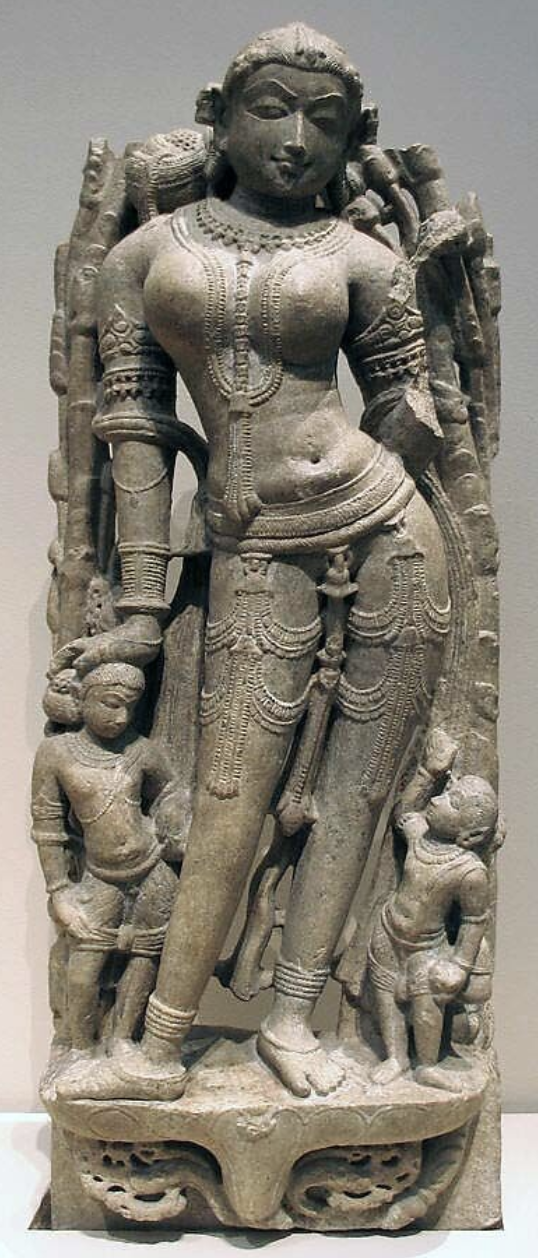
Artist: unknown
“Title:” Celestial Beauty
Date: 1000s
Location: India
Details:
Confidence over embarrassment in sexuality (not for the male gaze)
Tradition of Yakshi figures
Dance, beauty, vitality → natural power & fertility
Nature spirits welcome pilgrims into worship site
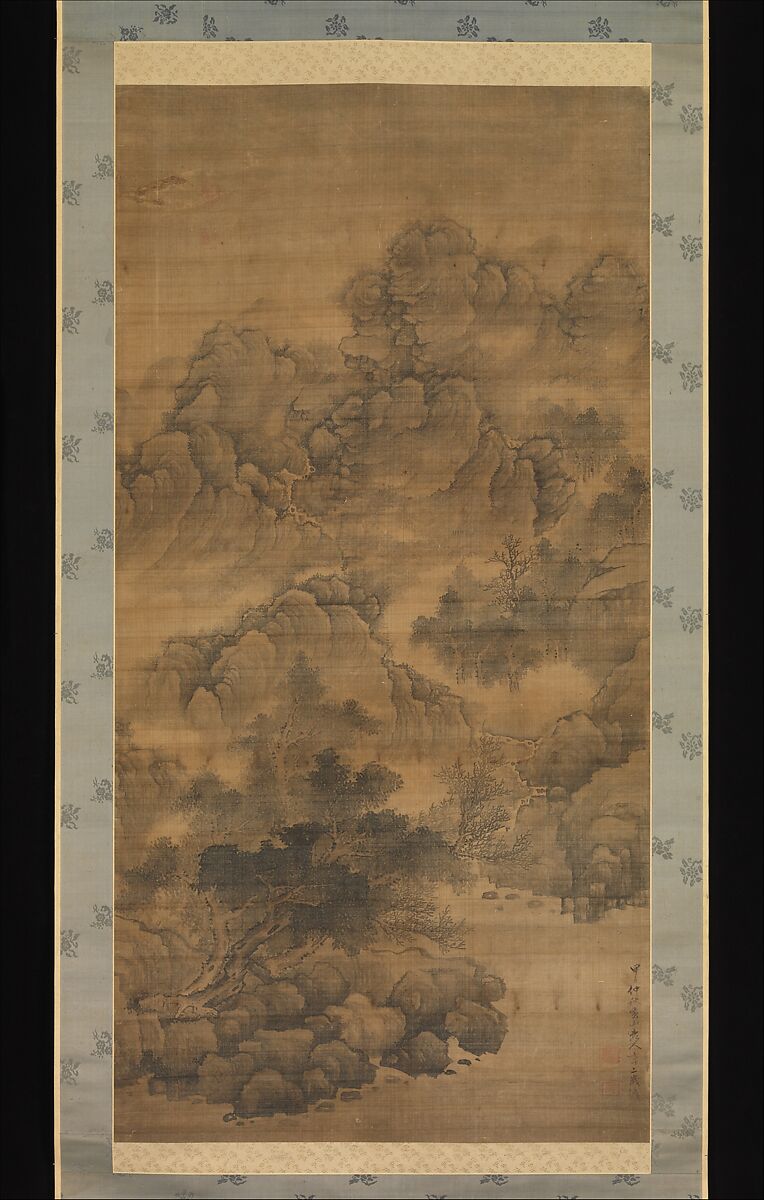
Artist: Fa Ruozhen
“Title:” Cloudy Mountains
Date: 1684
Location: China
Details:
Later scroll reminiscent of Northern Song
Landscape plays with scale (bottom → top)
Capturing moment when invisible becomes visible
Mountain metaphor for emperor’s power
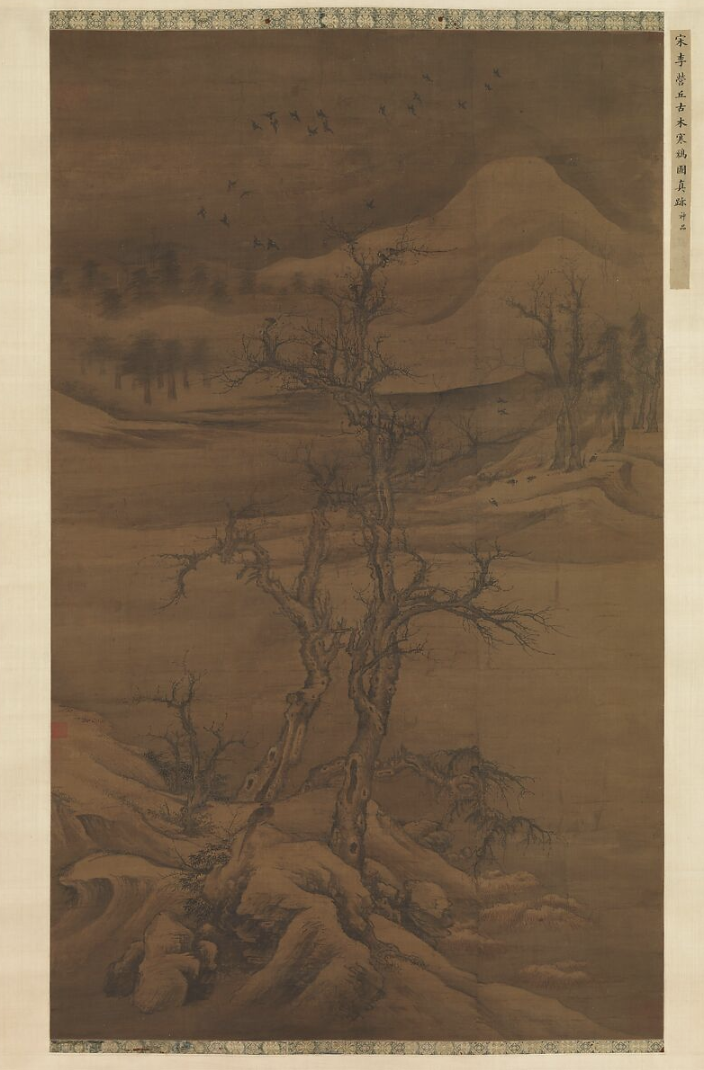
Artist: Luo Zhichuan
“Title:” Crows in Old Trees
Date: early 1300s
Location: China
Details:
Southern Song
Contrast to Palace banquet
Mourns loss of Northern Song
Two pines may represent scholars
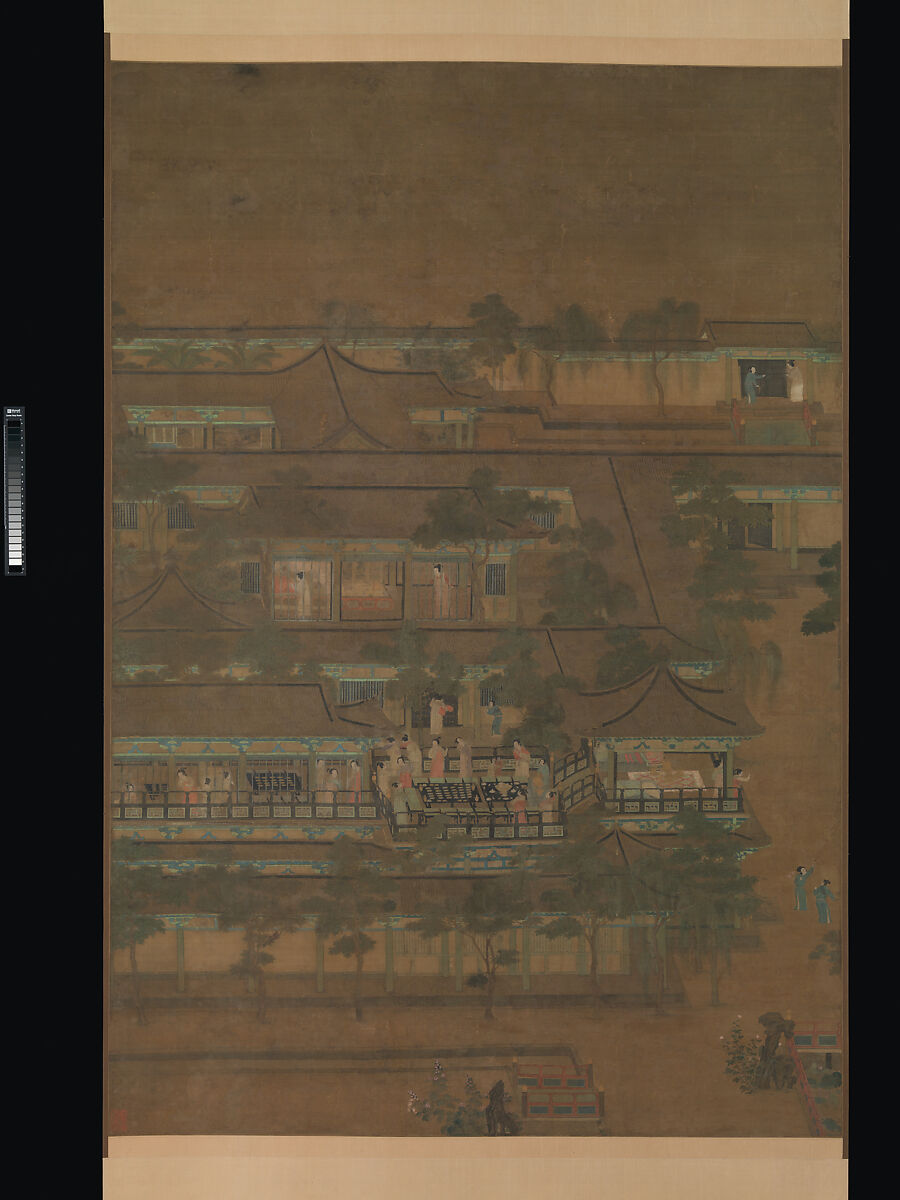
Artist: unknown
“Title:” Palace banquet
Date: 1000
Location: China
Details:
Northern Song scroll → anxiety (Jin invasion?)
God’s/emperor’s eye view of palace (axonometric view)
Emperor spent too long with his consort which led to an insurrection
Scene of imperial court women preparing for constellation viewing
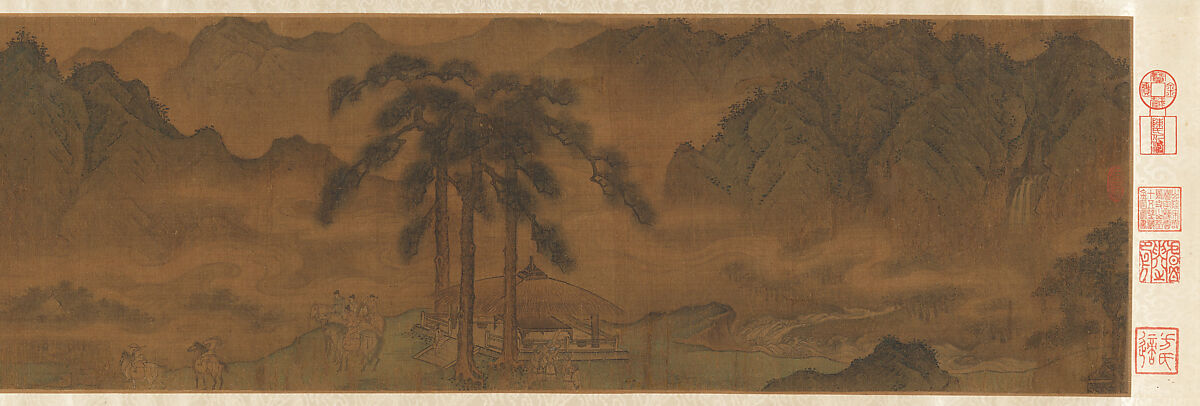
Artist: Attr. Yang Bangji
“Title:” A Diplomatic Mission to the Jin
Date: late 1150s
Location: China
Details:
Maybe record of Southern Song paying tribute to Jin tribes who ended Northern Song
Left → right, progressively un-scrolled
MORE??
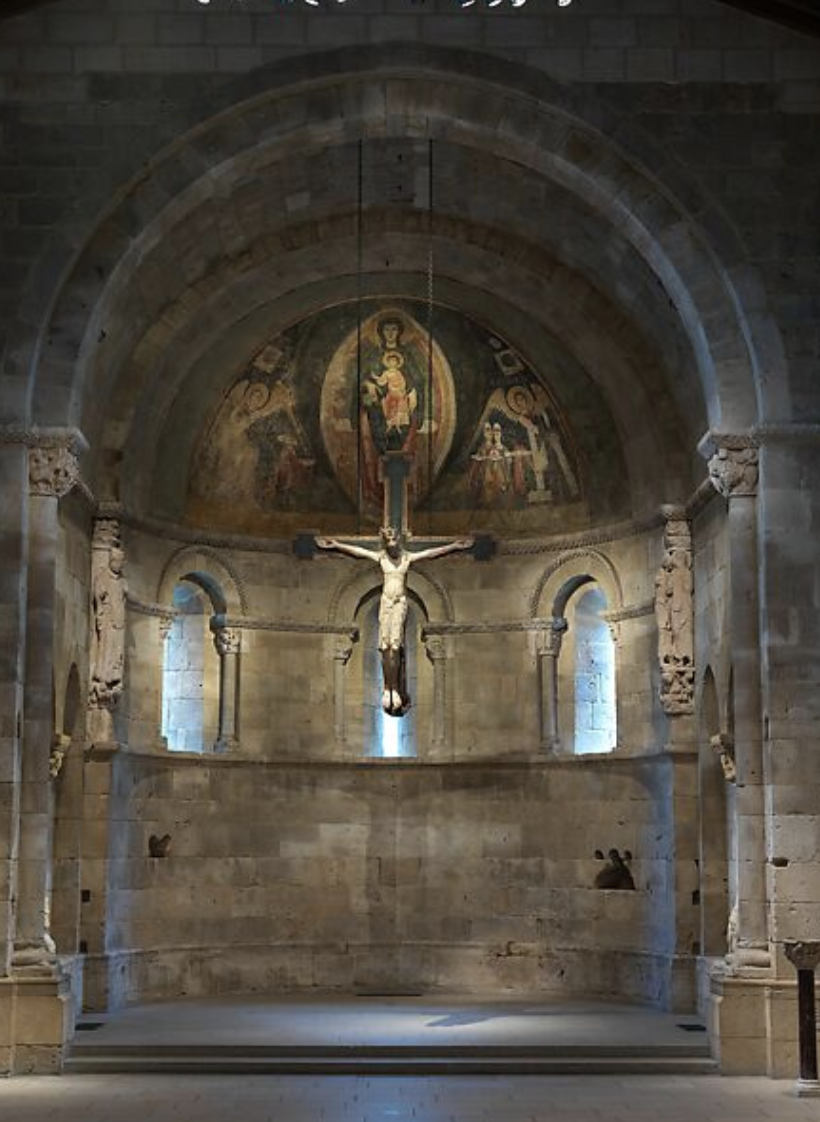
Artist: unknown
“Title:” Apse from San Martín at Fuentidueña
Date: 1180
Location: Spain
Details:
Romanesque painting style: details prioritize message > naturalism
Romanesque architecture: big stone, thick walls, small windows
Created in part by increase of pilgrimage routes
Liminal points mark threshold between sanctuary and nave
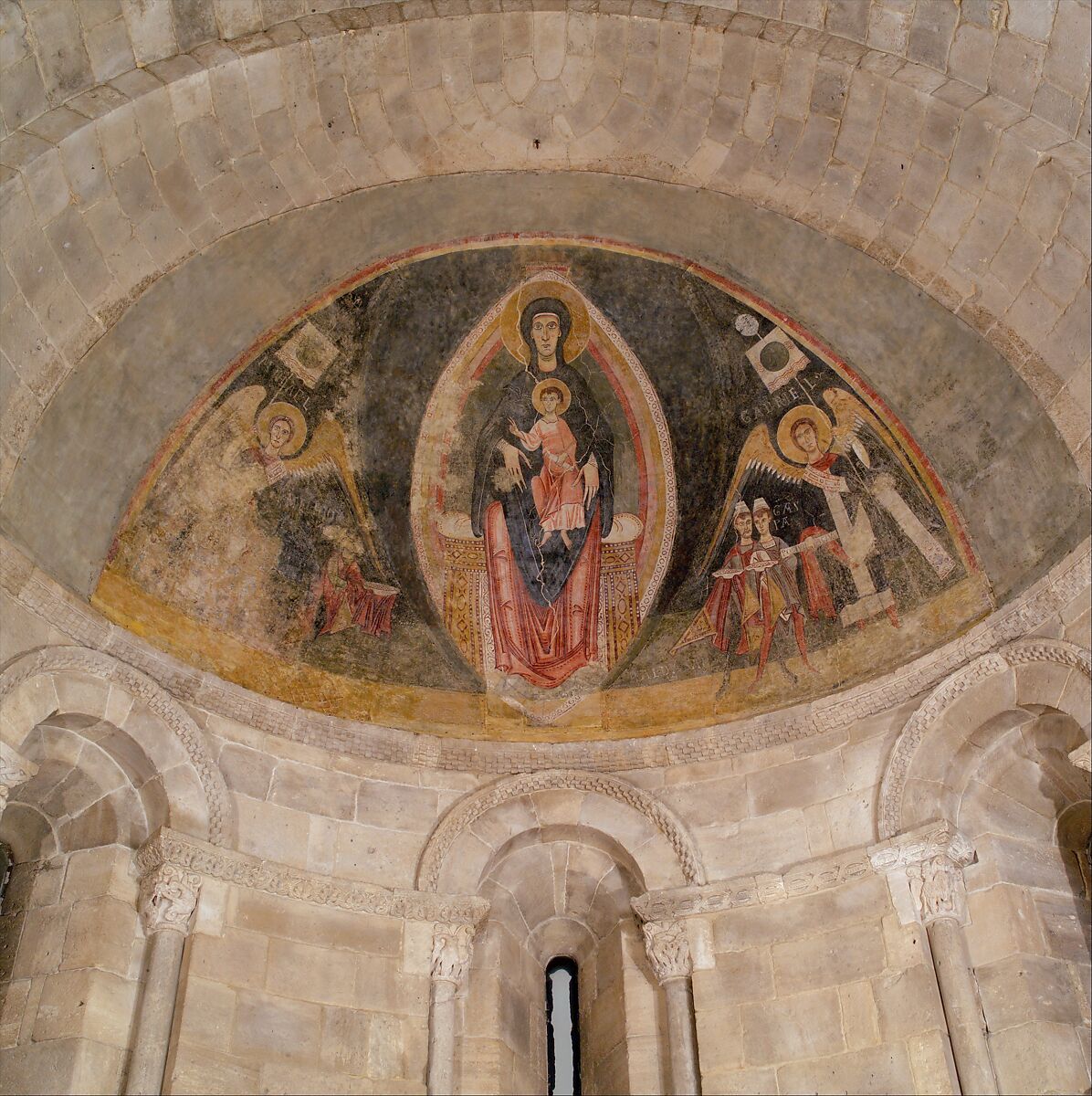
Artist: Master of Pedret?
“Title:” The Virgin and Child in Majesty and the Adoration of the Magi
Date: 1100
Location: Spain
Details:
Romanesque art often puts the beginning and end of a story in one piece
Almond shape represents cosmos
Angels Michael & Gabriel
Accentuated eyes, hands, feet
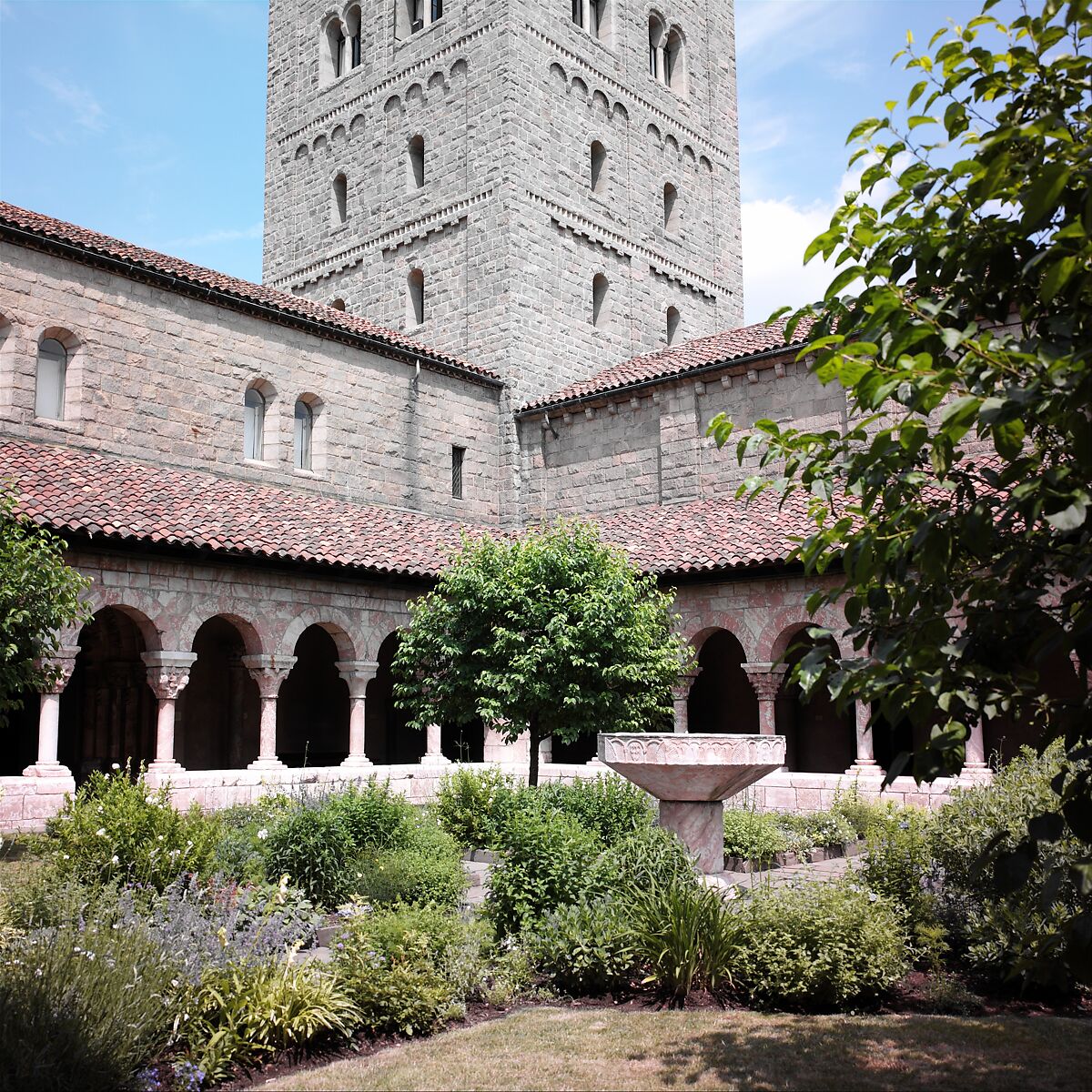
Artist: unknown
“Title:” Cuxa cloister
Date: 1130
Location: Spain
Details:
Typically Romanesque: squat columns, semicircular arches, heavy feel
Capital columns show demons, sinners in hell, monkeys
Marginalia
Humor
Warning to sinners
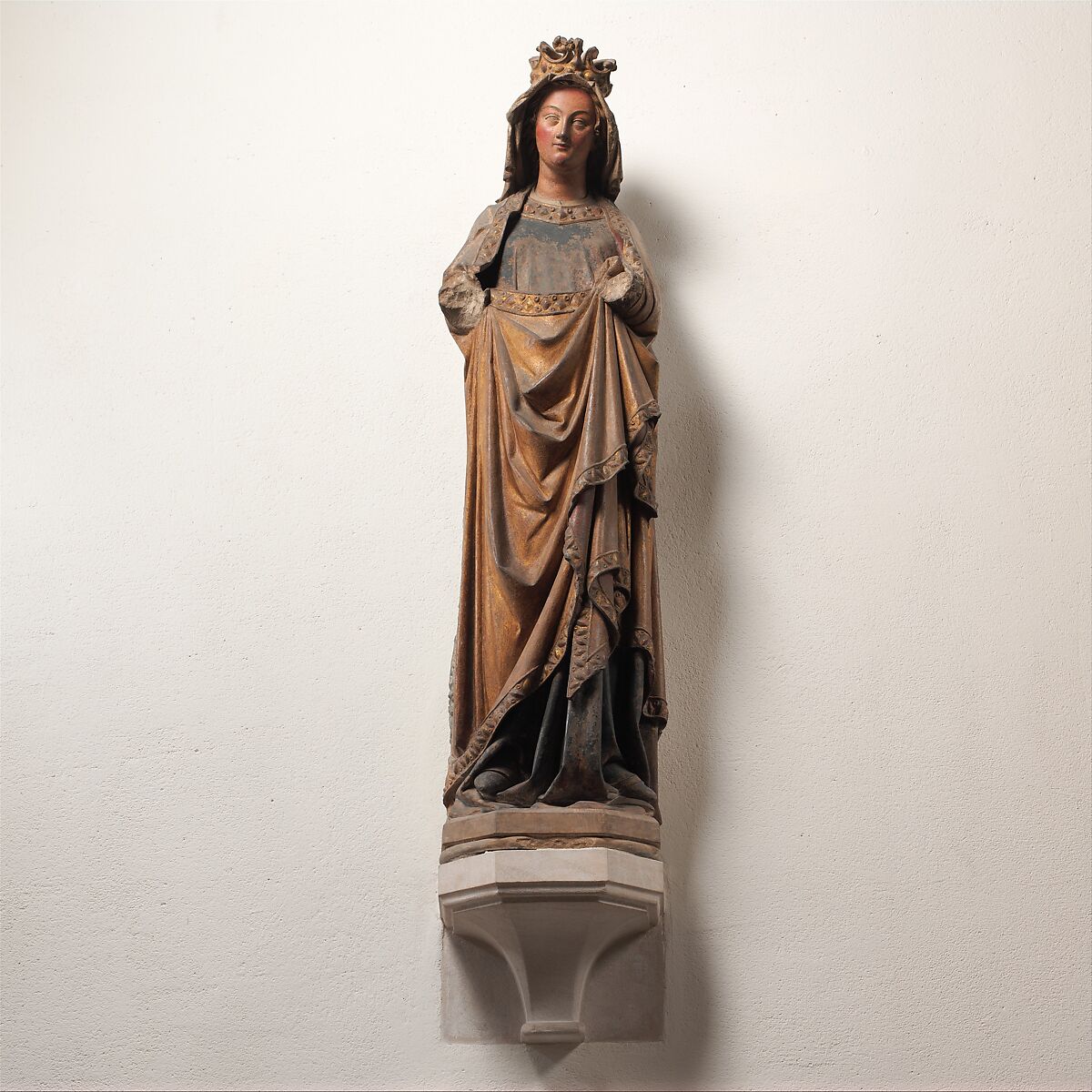
Artist: unknown
“Title:” Virgin
Date: 1250
Location: Strasbourg
Details:
Start of gothic sculpture interest in naturalism, emotion
Maintains columnar feel of earlier gothic sculpture
Liminal figure, would have stood on a rod screen separating sanctuary from nave
Pose/demeanor welcomes faithful but reminds them of the need for an intercessor
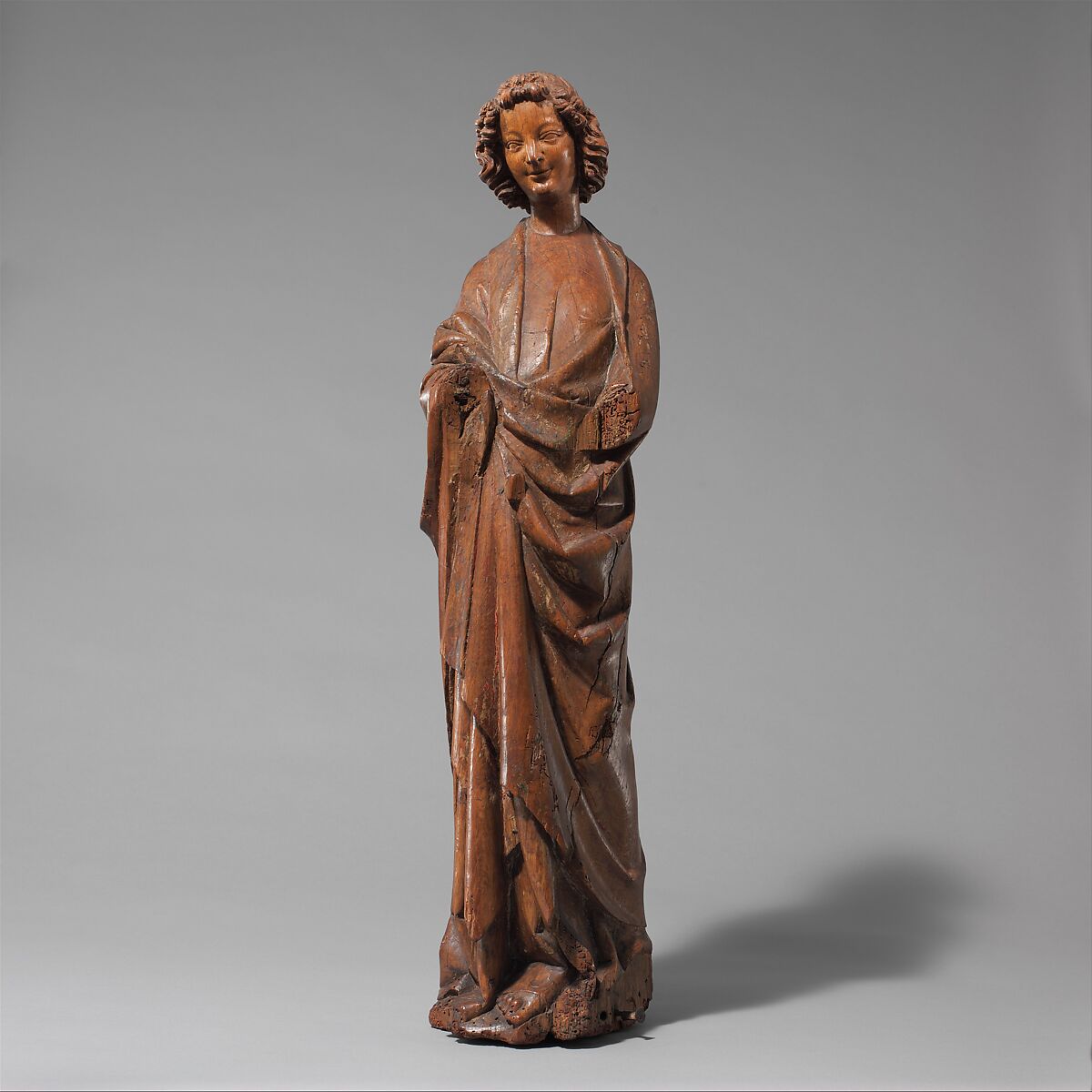
Artist: unknown
“Title:” Altar Angels
Date: 1280
Location: France
Details:
Smile: inviting, but not psychological depth
Features under drapery still hard to make out
Pose starts to remind of classical sculpture, unsure whether deliberate
Dancing feel breaks columnar form of gothic sculpture
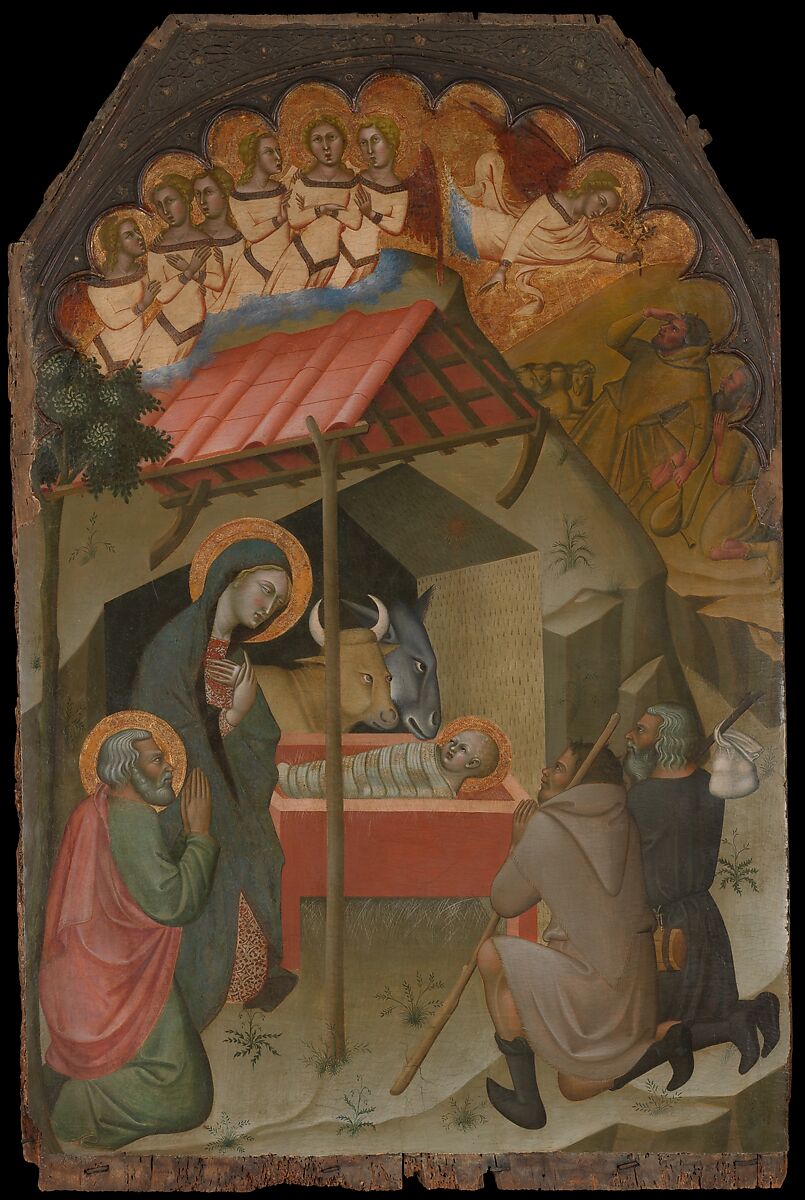
Artist: Bartolo di Fridi
“Title:” The Adoration of the Shepherds
Date: 1374
Location: Italy
Details:
Emotions visible on shepherds’ faces
Intuitive perspective: objects in front cover objects behind
Only perspective used
Post-Giotto (late ME/early Ren)
Starts likeness rather than presence
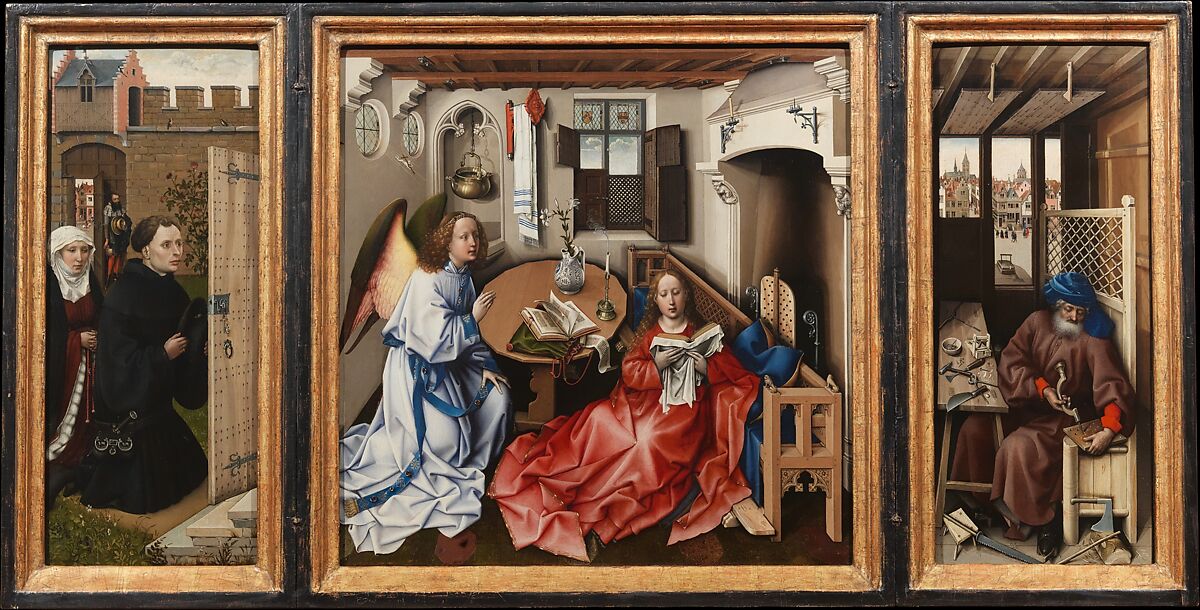
Artist: Robert Campin workshop
“Title:” Merode altarpiece
Date: 1430
Location: Netherlands
Details:
Everyday objects are allegories
Designed for home use
Key in door references St. Peter
Oil paint
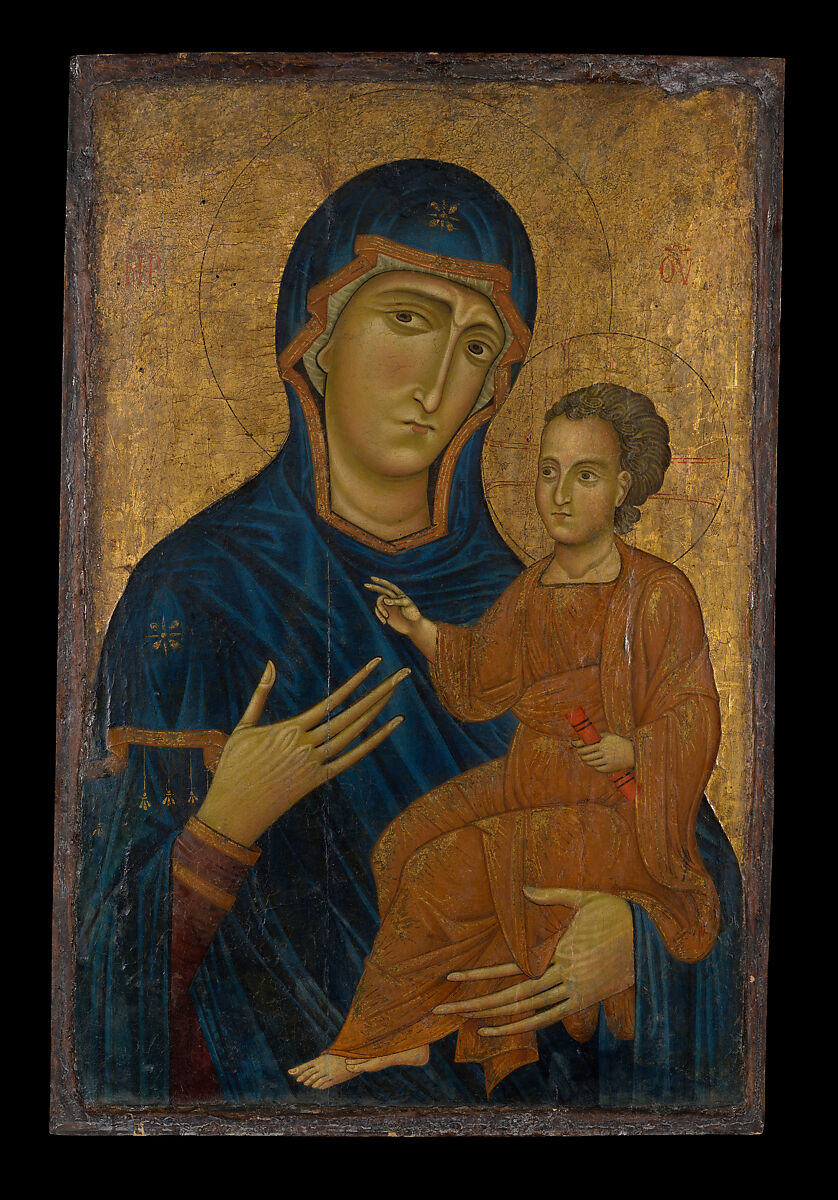
Artist: Berlinghiero
“Title:” Madonna and Child
Date: 1230s
Location: Italy
Details:
Designed to be on an altar/focus of prayer
Presence > likeness
Elongates eyes & fingers to exist in viewers’ space
Gold & blue (lapis): precious materials → accentuate holiness
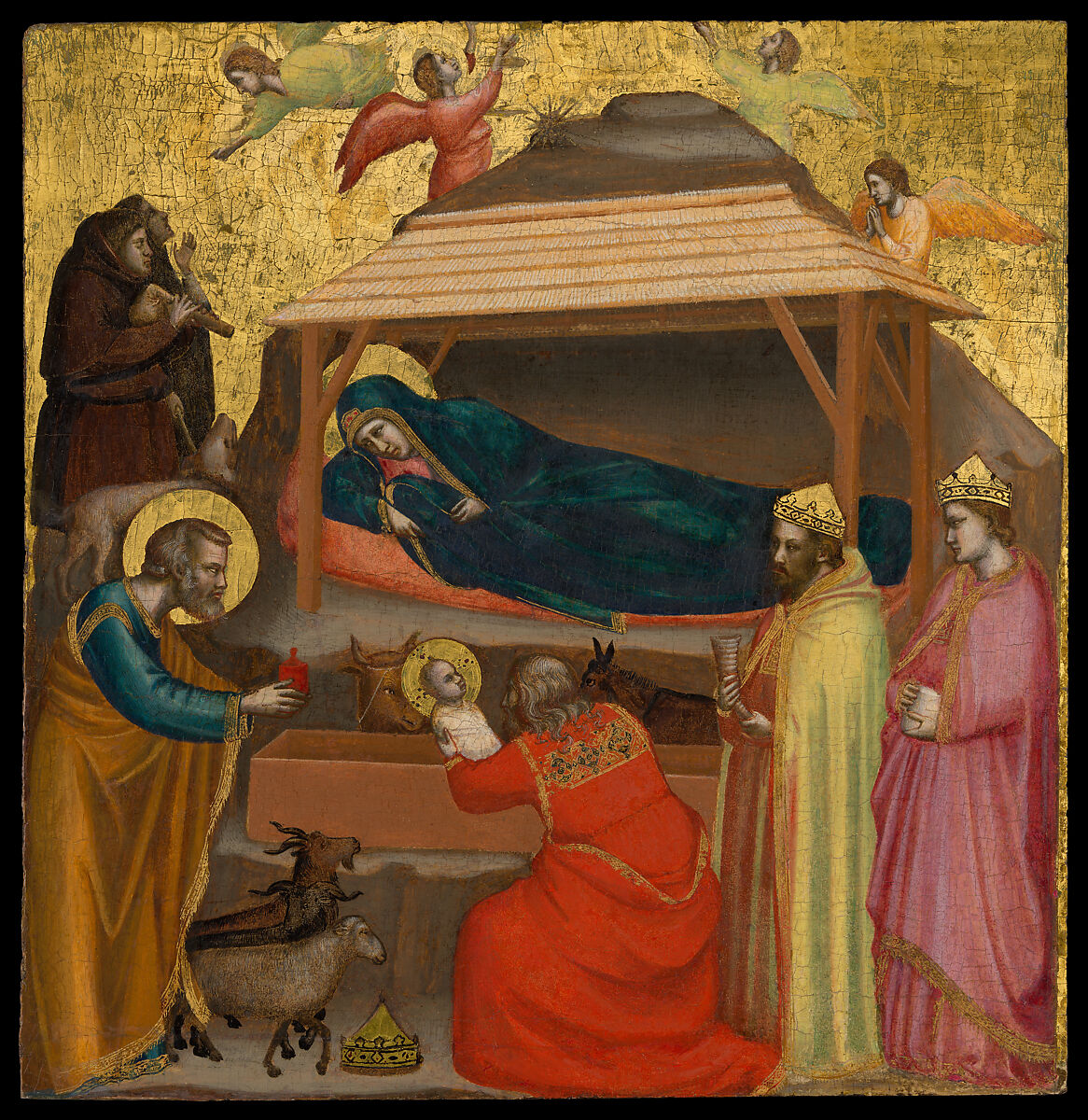
Artist: Giotto di Bondone
“Title:” Adoration of the Magi
Date: 1320
Location: Italy
Details:
Key emotional detail: king picks up child in emotional pose (contrast to static figures of Gothic painting)
Parallel between 3 goats and 3 kings
Holy family has haloes but kings do not, which makes them seem more human
Natural landscape → shape of mountain frames the scene
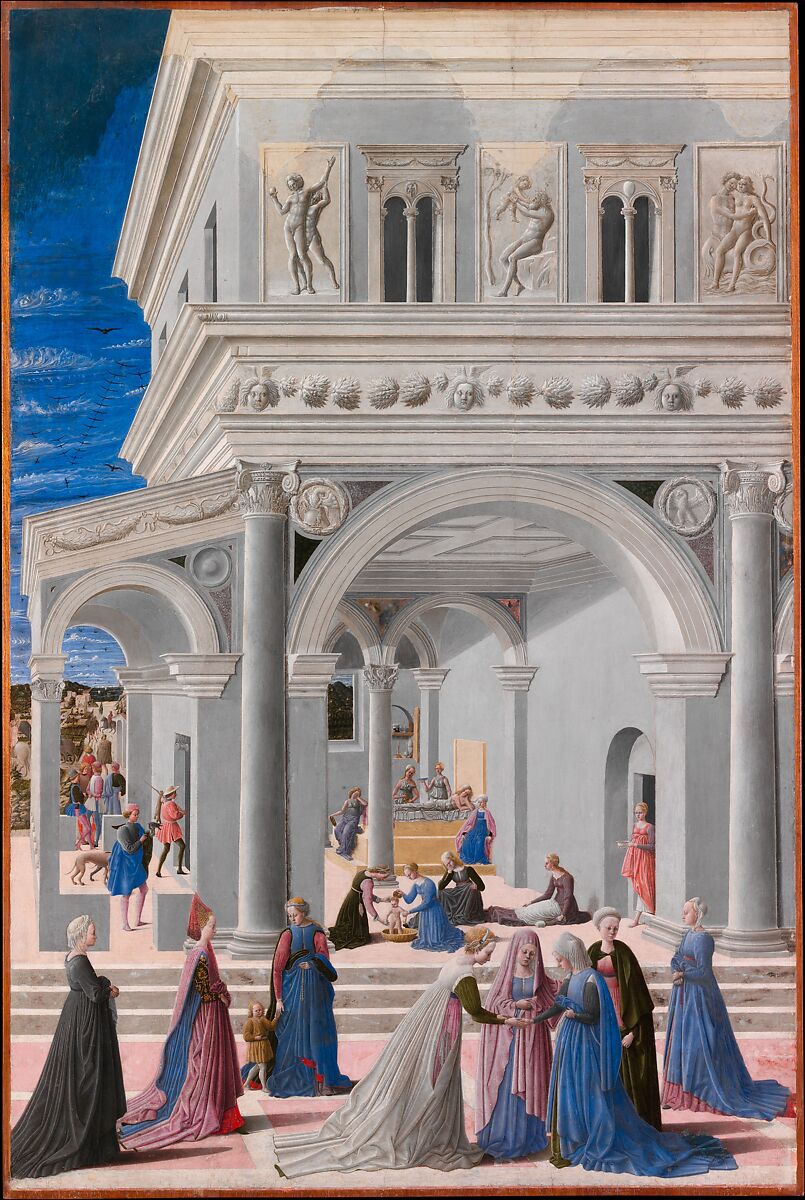
Artist: Fra Carnevale
“Title:” The Birth of the Virgin
Date: 1467
Location: Italy
Details:
Creating a threshold
Surrounding people dressed in then-contemporary french fashion
Contemporary transposition
Linear perspective: vanishing point
Atmospheric perspective: color creates depth, juxtaposition
Classicizing imagery (Greco-Roman architecture to represent the glory of the Duke)
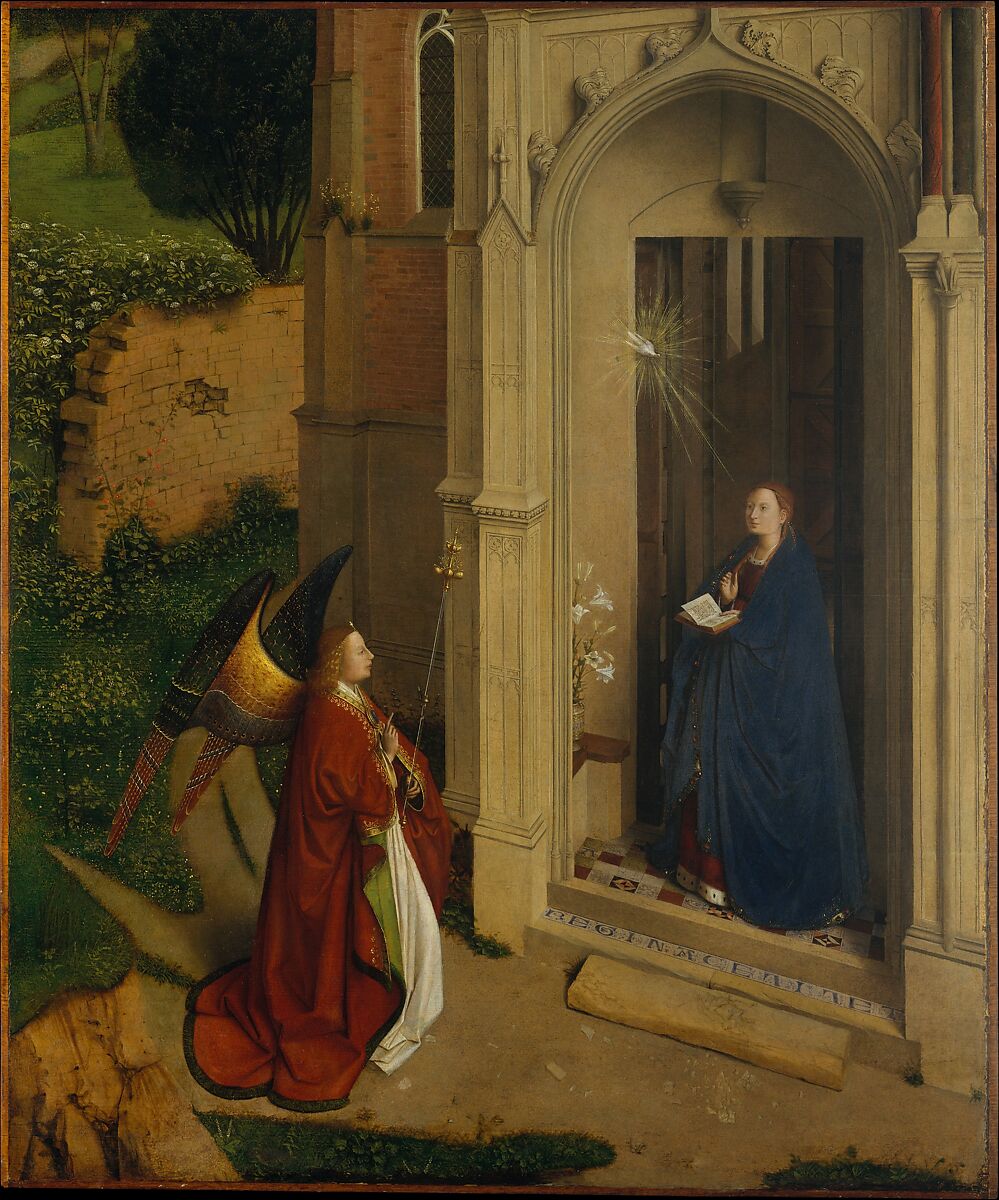
Artist: Petrus Christus
“Title:” The Annunciation
Date: 1445
Location: Netherlands
Details:
Typical of Northern Renaissance style (contemporary transposition, oil paint)
Gleaming holy figure
Elevated perspective
Indoor/outdoor threshold created
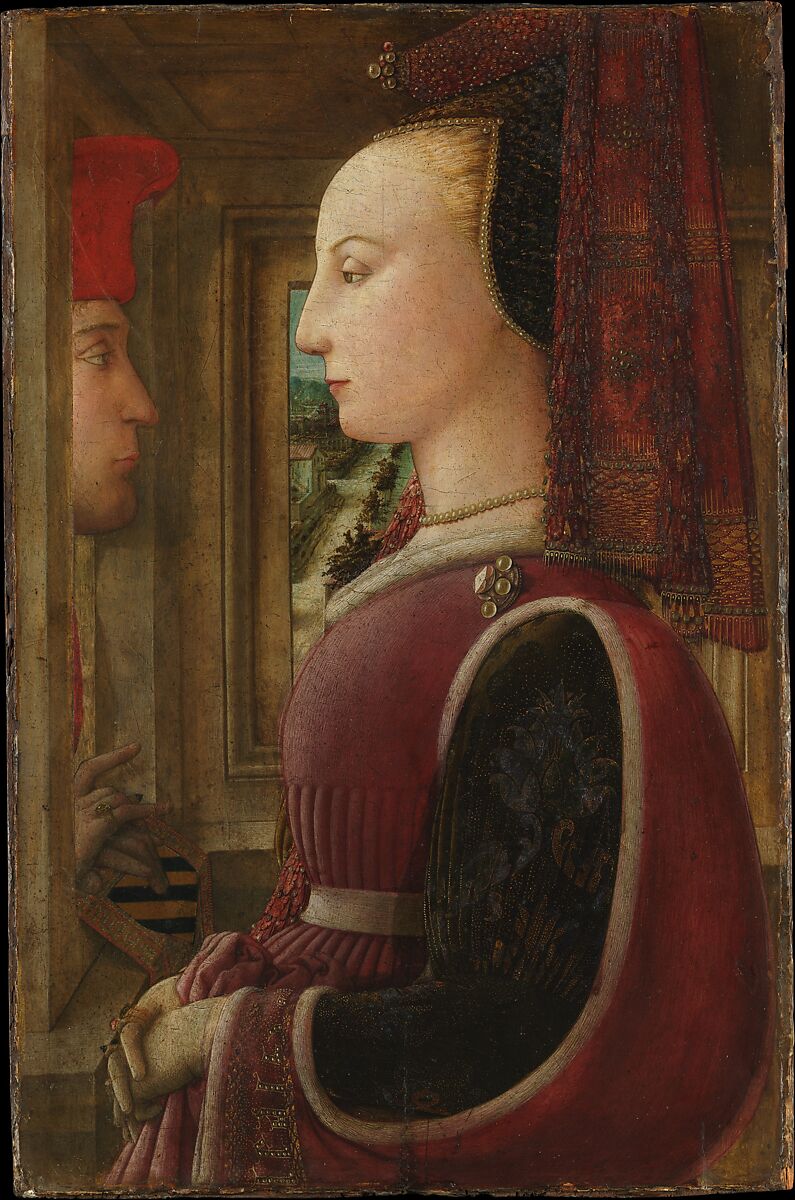
Artist: Fra Filippo Lippi
“Title:” Portrait of a Woman with a Man at a Casement
Date: 1440
Location: Italy
Details:
First double portrait in the Southern Renaissance
Close to one point perspective
Woman physically above man → on pedestal
Background represents wider network of responsibility due to marriage
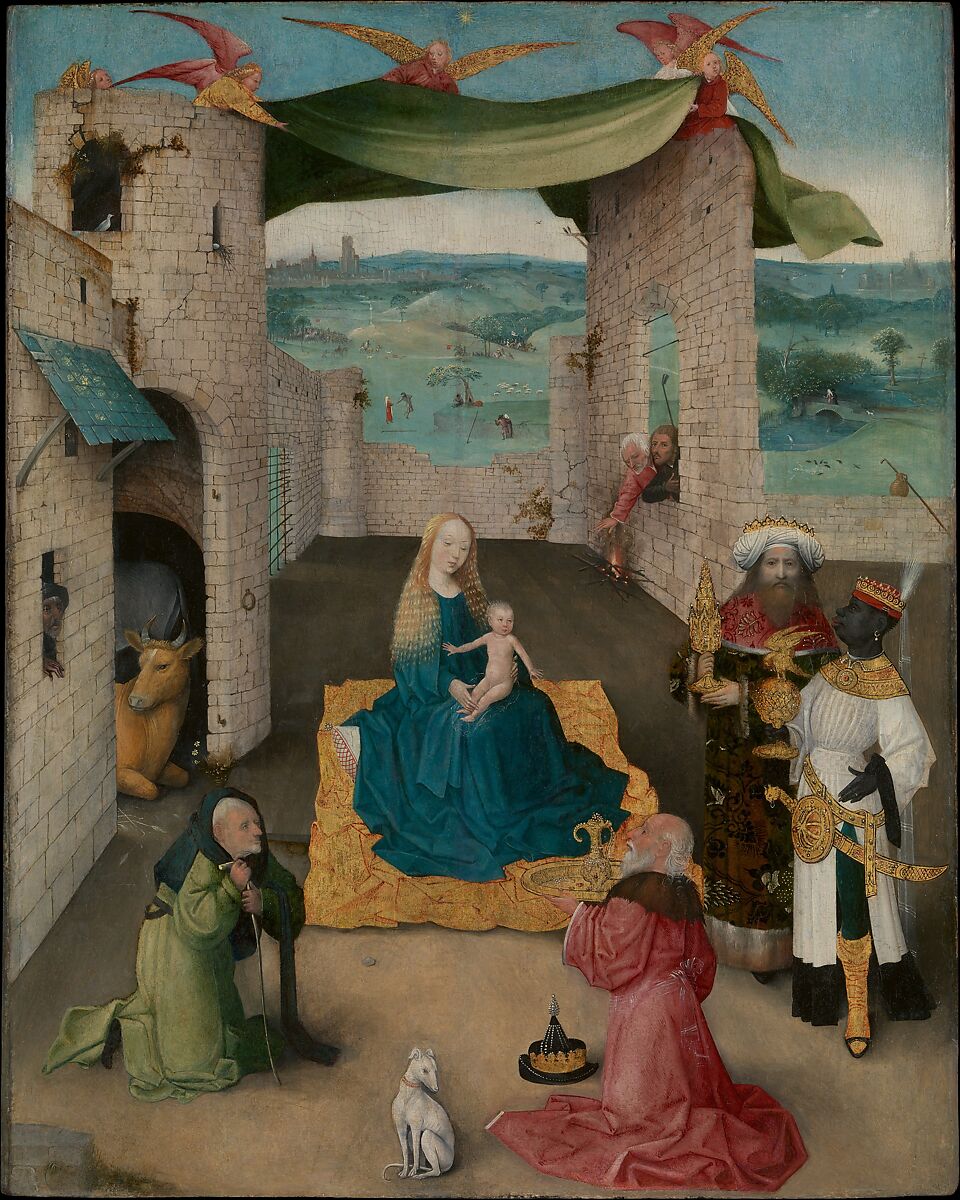
Artist: Hieronymus Bosch
“Title:” The Adoration of the Magi
Date: 1475
Location: Netherlands
Details:
Plays with compositions
Northern features
Oil paint
No obvious classical influence
Inspired by “cabinets of curiosities” collections, early museums
Black magi present
Demons getting lit in background
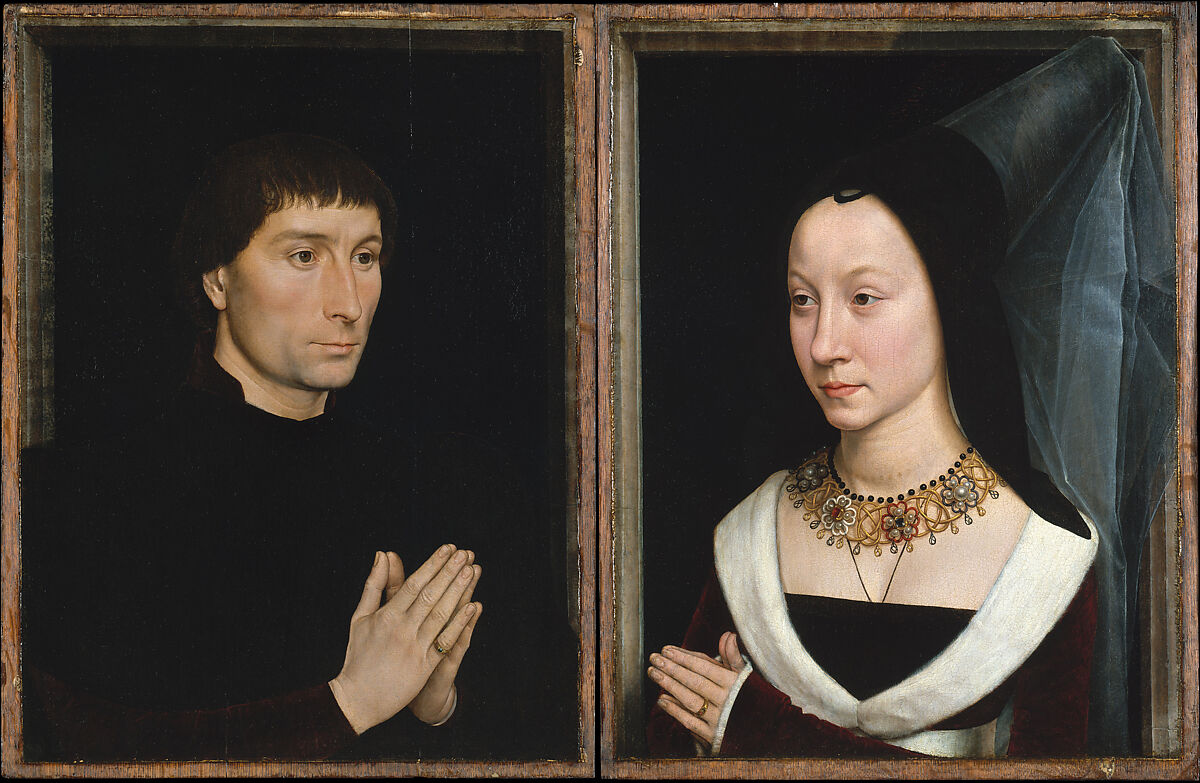
Artist: Hans Memling
“Title:” Tommaso di Folco Portinari and Maria Portinari
Date: 1470
Location: Netherlands?
Details:
Commission for rich banking family
Oil paints → dark, built up colors
Woman casts shadow into painted frame → illusion of coming out of the frame
Naturalistic ¾ portraits
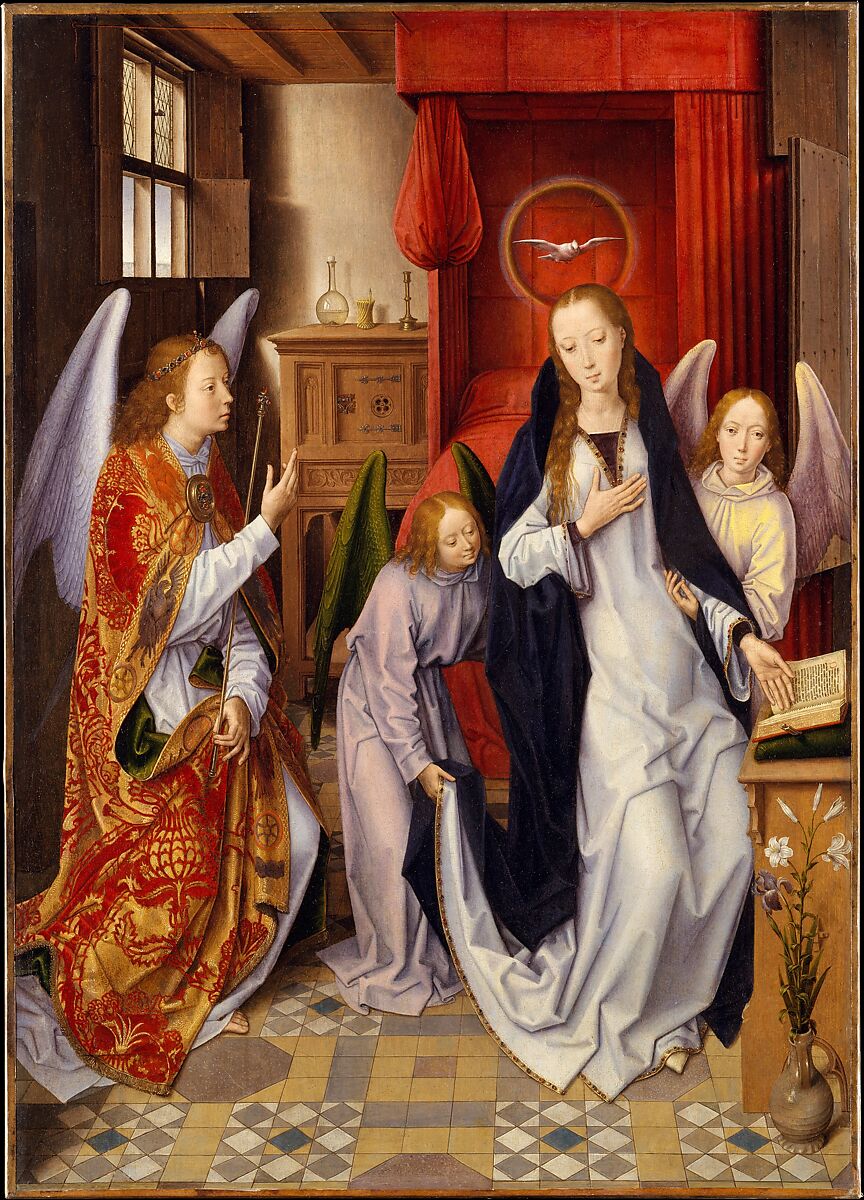
Artist: Hans Memling
“Title:” The Annunciation
Date: 1480-1489
Location: Netherlands?
Details:
Classic Northern Annunciation
Bourgeois interior, oil paint
Everyday object allegories (ie. clear empty glasses = VM)
Rich bed symbolizes pregnancy, middle class status
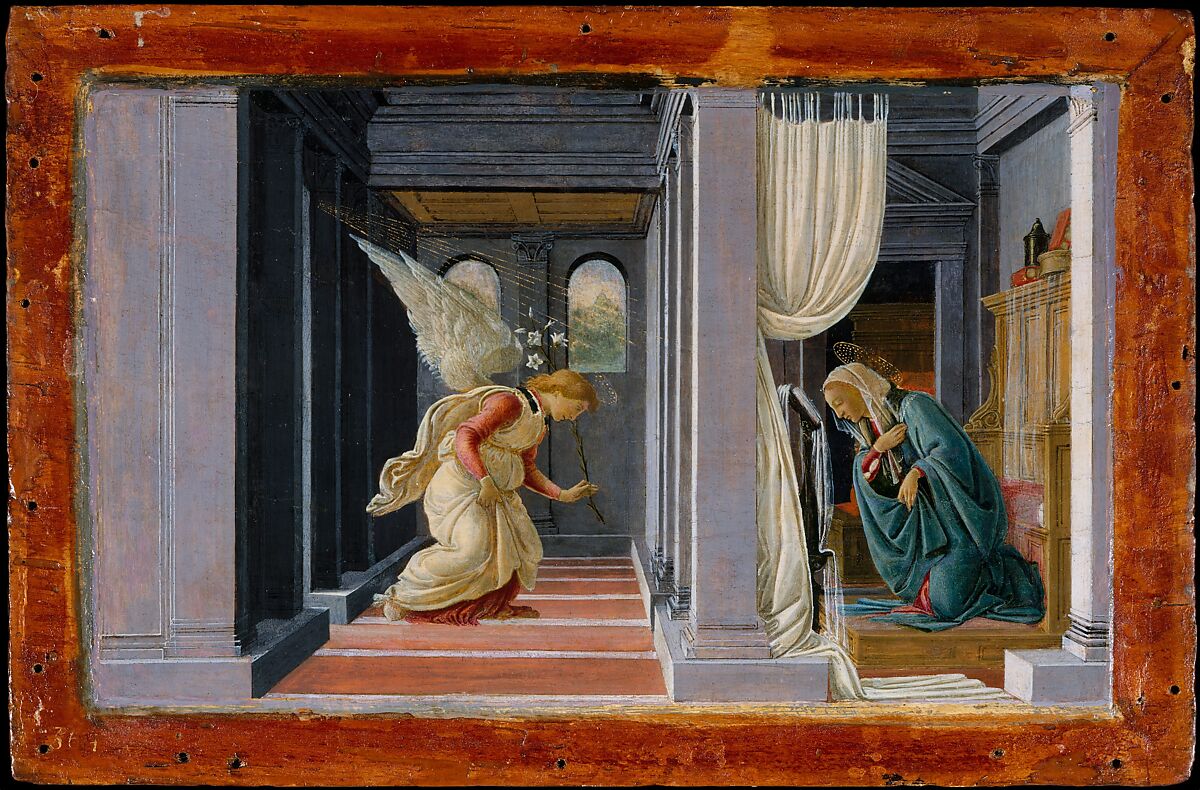
Artist: Botticelli
“Title:” The Annunciation
Date: 1490
Location: Italy
Details:
Classic Southern Renaissance
1 point perspective creates liminal space
Naturalism and beauty > emotion
Garden evokes Eden, VM
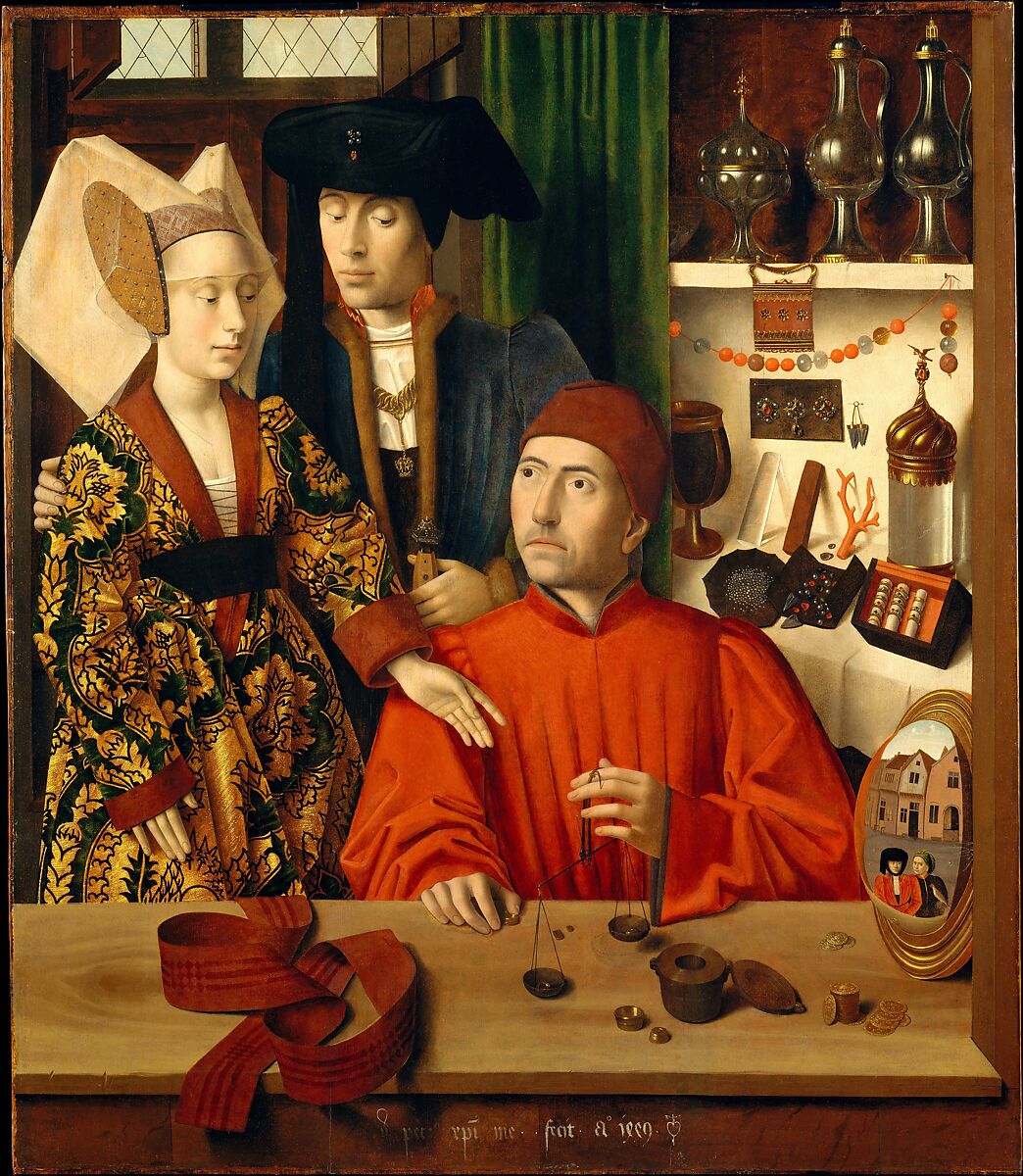
Artist: Petrus Christus
“Title:” A Goldsmith in his Shop
Date: 1449
Location: Netherlands?
Details:
Convex mirror inserts viewer into painting
Northern: oil paint, everyday bourgeois life, light shining off surfaces
Probably a portrait of a goldsmith
Artist can see and show more than regular people
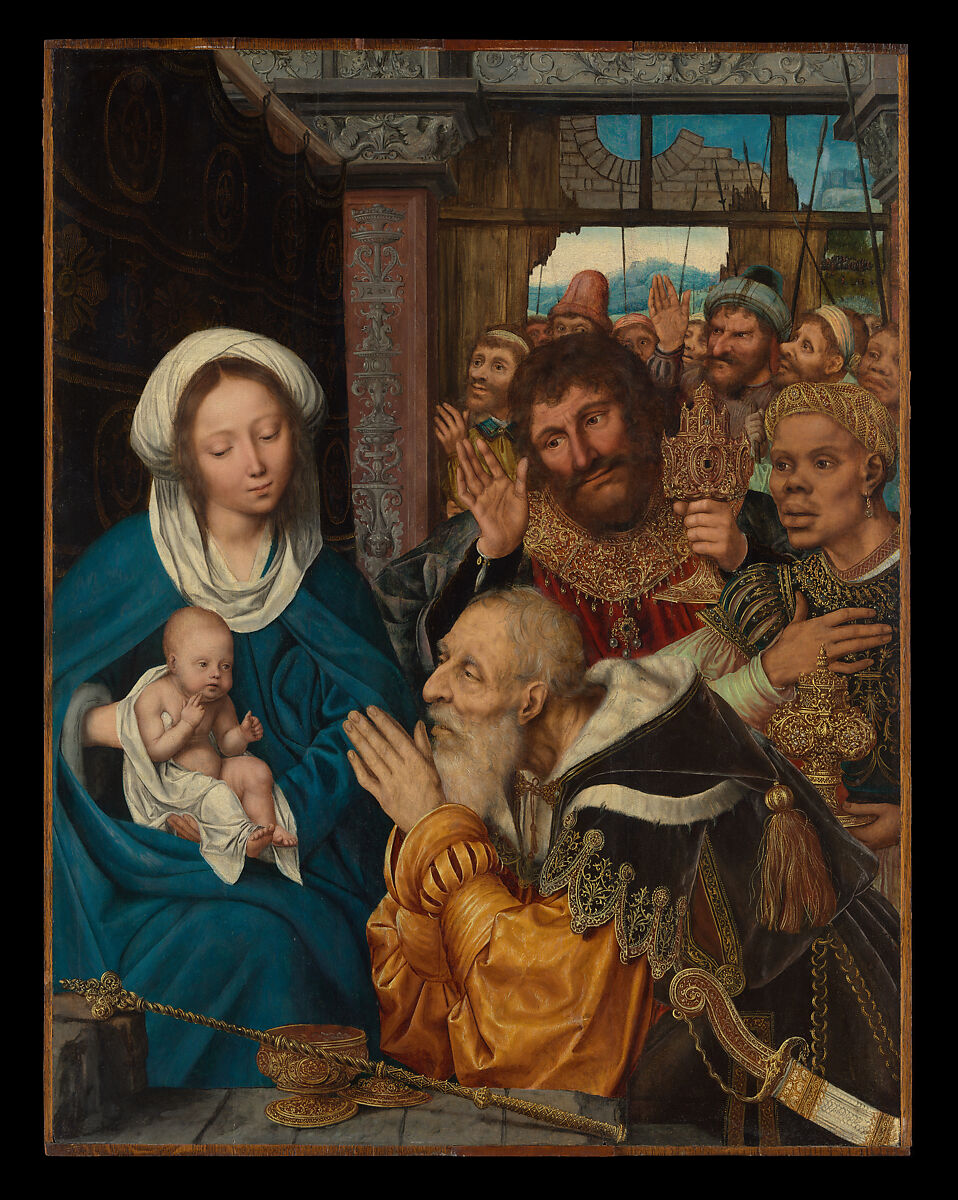
Artist: Quinten Massys
“Title:” The Adoration of the Magi
Date: 1526
Location: Netherlands?
Details:
Contrasts between
Female/male
Rich/poor
Black/white → depictions of africans
Human/divine → lighting, smoothed skin, blue & white color (like sky)
Late Northern Ren: oil, no one point, everyday details > classical learning
Black king present → worked in Antwerp (trading ties to Portuguese slave trade)
3 kings are individuals but influenced by caricatures developed by da Vinci
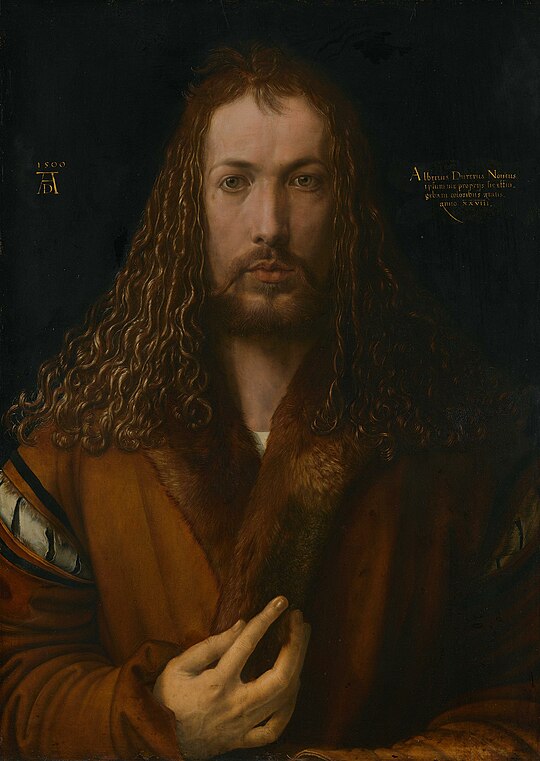
Artist: Albrecht Dürer
“Title:” Self Portrait
Date: 1500
Location: Germany
Details:
Triangular composition typical of renaissance, faces viewer
Christlike
Nice clothes, courtly gesture
Signs & dates to authenticate prints → curates brand
Basis of Koerner’s Ren works
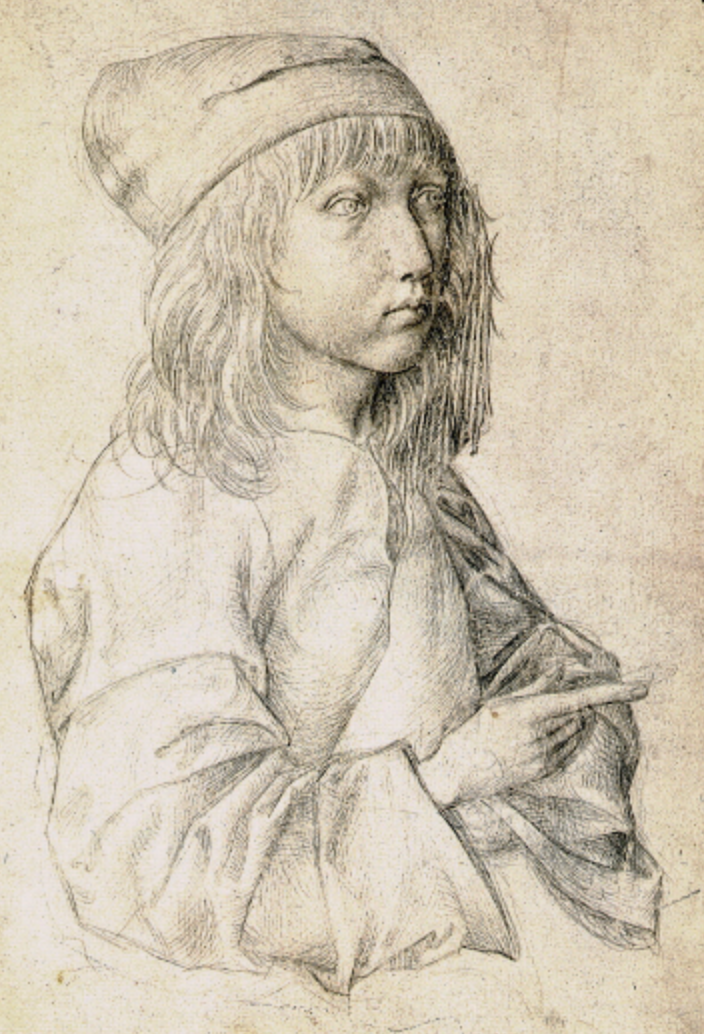
Artist: Albrecht Dürer
“Title:” Self Portrait
Date: 1484
Location: Germany
Details:
Silverpoint drawing done as a child
Kept as a sign of precious talent
Sign of rise in status of artist
Dürer was good at curating his own legend
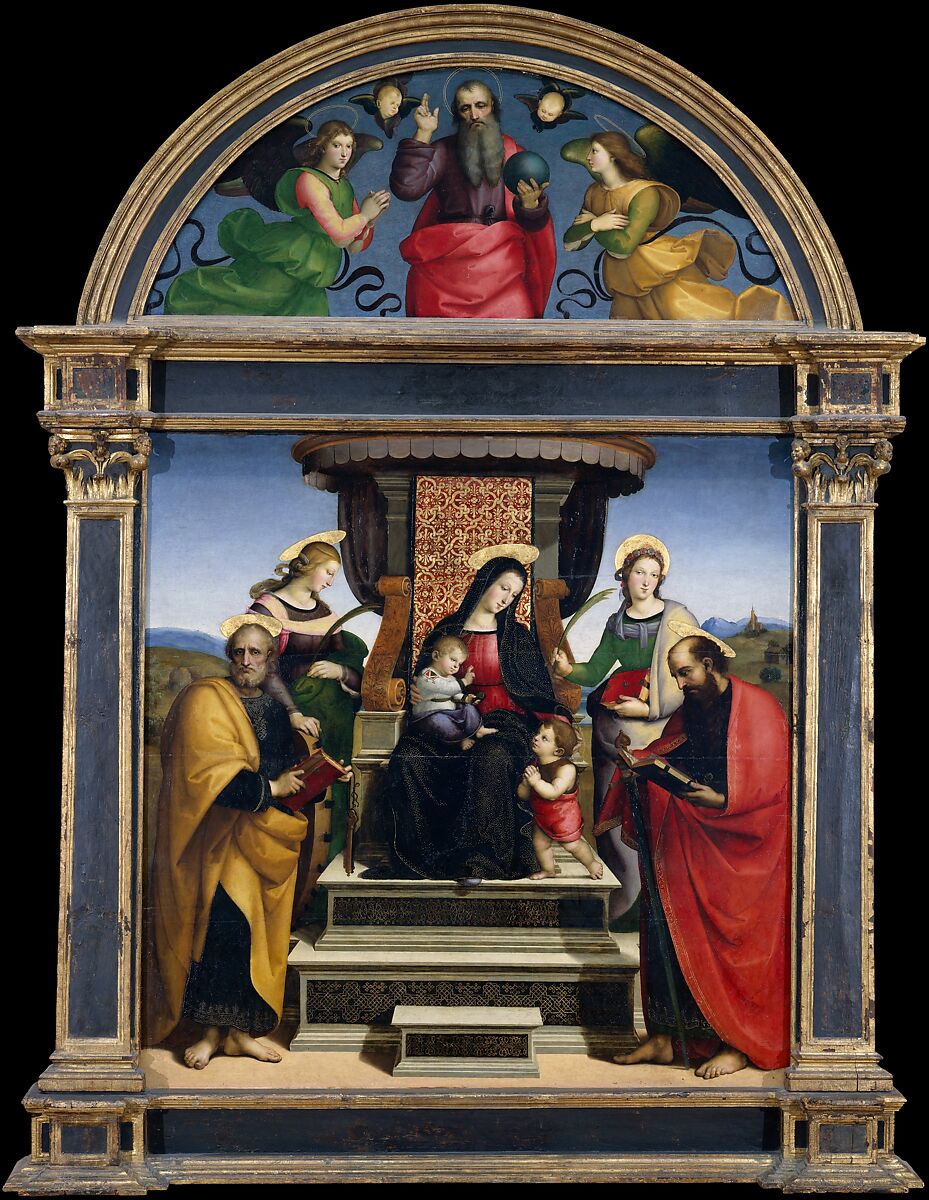
Artist: Raphael
“Title:” Madonna and Child Enthroned with Saints
Date: 1504
Location: Italy
Details:
Halfway between Raphael’s independence as an artist and commission by Julius II
True first perspective
Inclusion of John the Baptist → 3-person composition (triangle)
Shadow of St. Paul on steps demonstrates elevated understanding of lighting and perspective
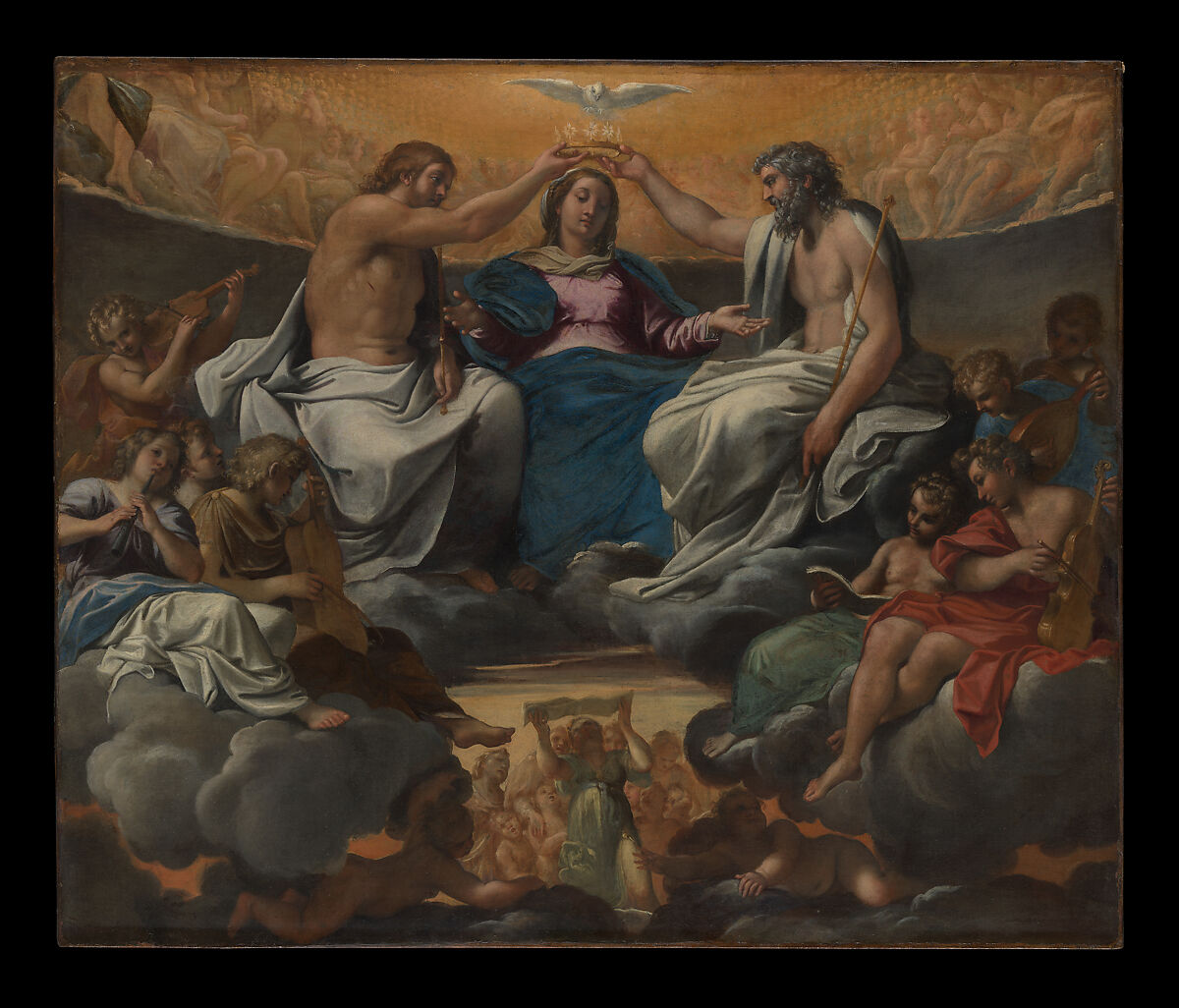
Artist: Annibale Carracci
“Title:” The Coronation of the Virgin
Date: after 1595
Location: Italy
Details:
Mannerist: stretch the rules of traditional high renaissance art
Different proportions
Wider range of color (not just brights)
Sensory emphasis (sound, sight, touch)
Stretch triangle composition
Theatrical & dramatic
Counter reformation: reassert Catholicism’s reliance on religious art
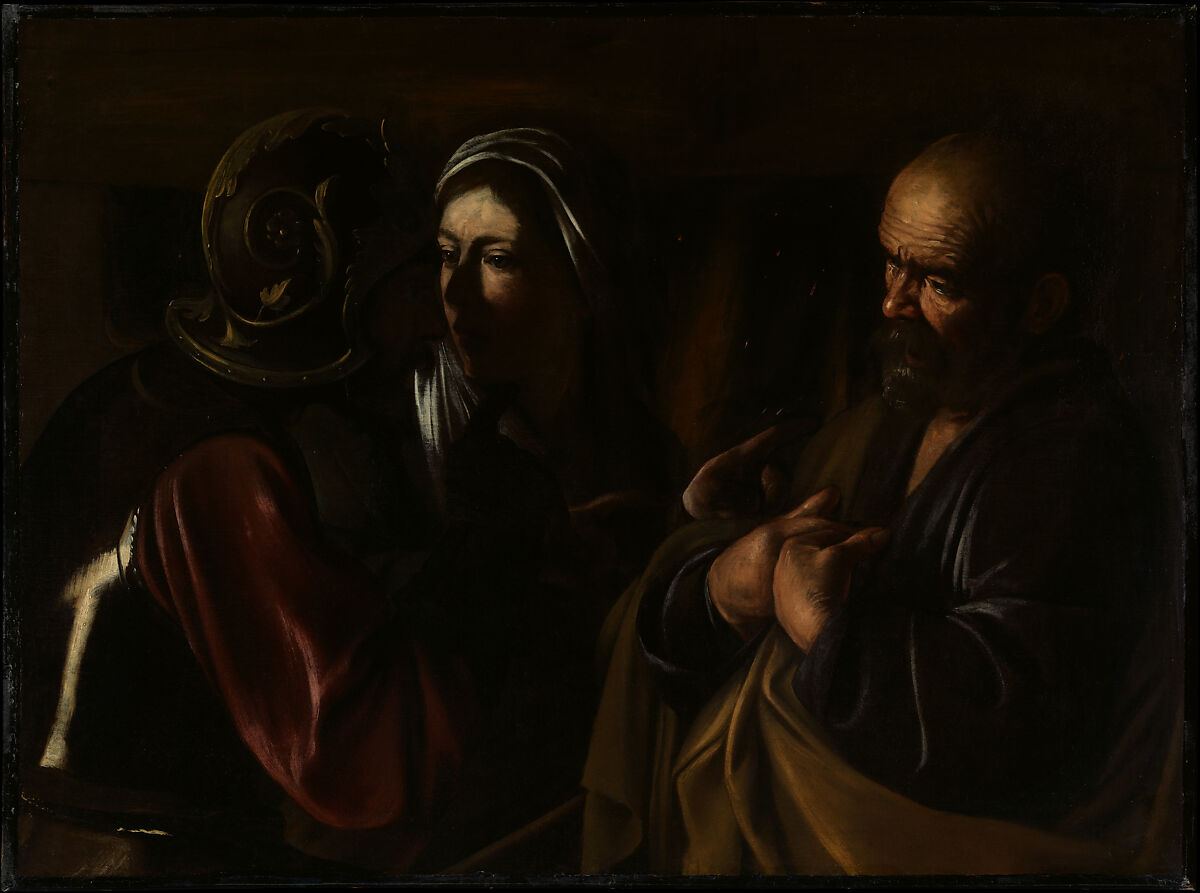
Artist: Caravaggio
“Title:” The Denial of St. Peter
Date: 1610
Location: Italy
Details:
Very dark color palette
Extreme psychological depth
Little focus on background
Less theatrical/more realistic
3 points of denial (3 fingers)
Light on back of breastplate represents cross
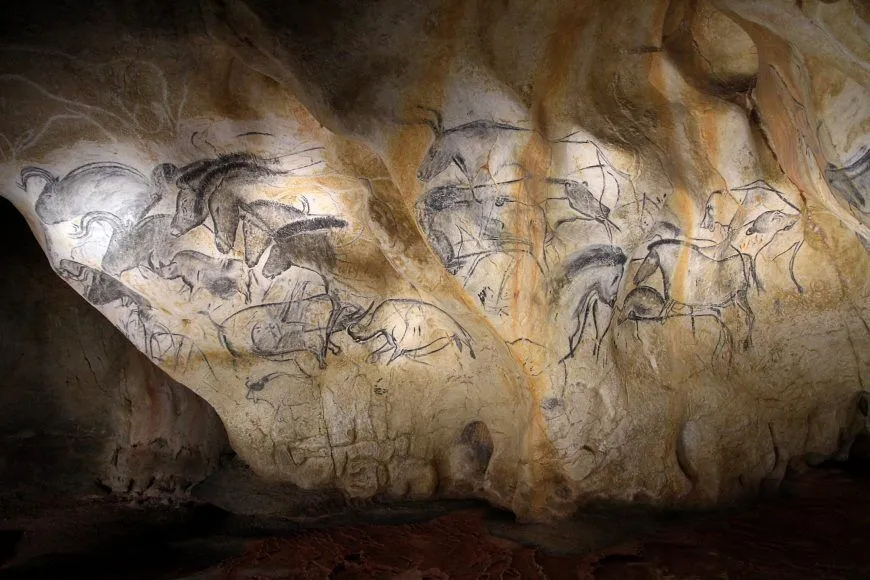
Artist: unknown
“Title:” Wall Painting with Horses, Rhinoceroses, and Aurochs
Date: 32,000-30,000 BCE
Location: France
Details:
At least 1,000 years between oldest and newest markings (carbon dating)
Only visible via torchlight
Uses contours of rock to add depth, movement
Made by homo sapiens
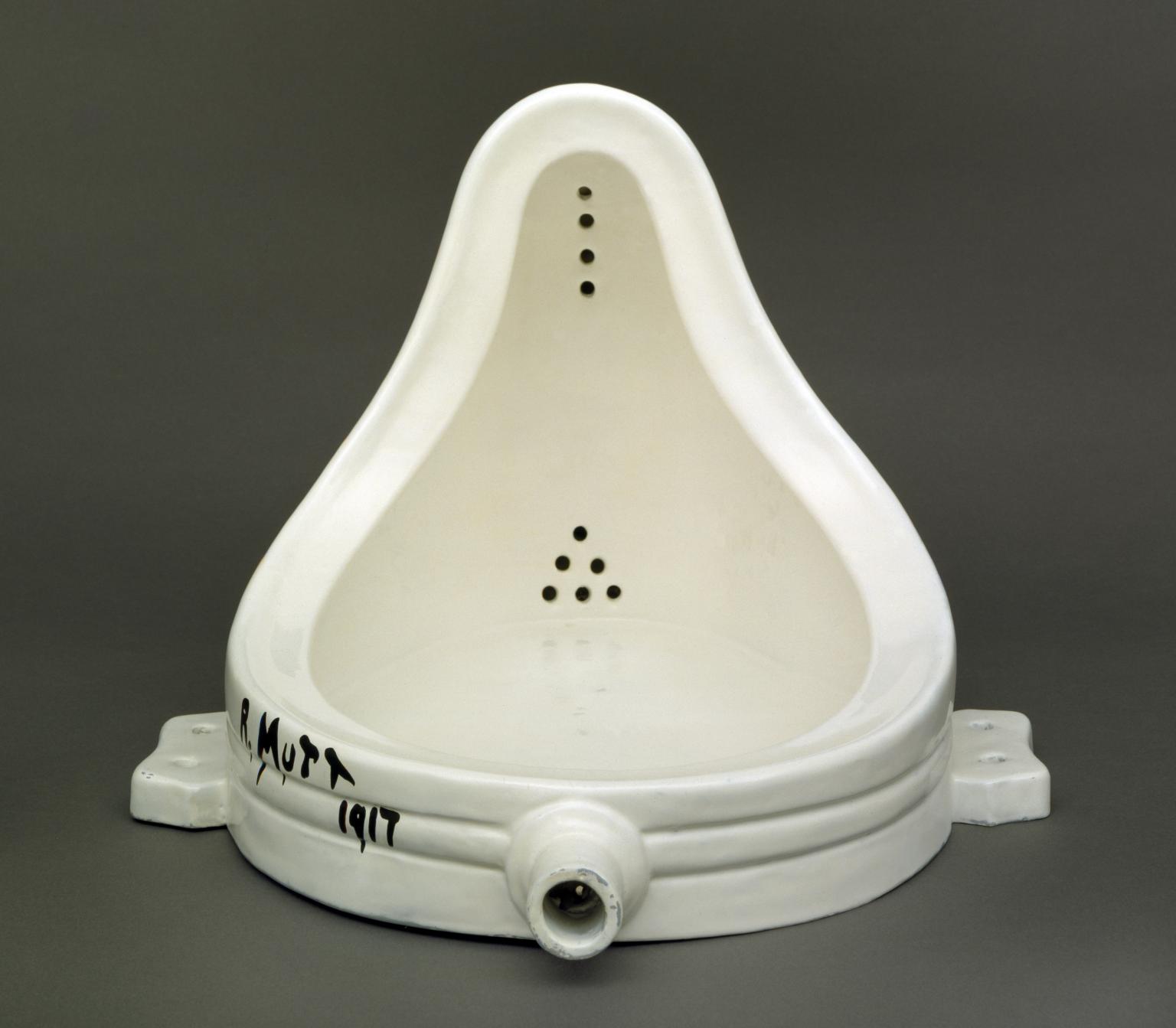
Artist: Marcel Duchamp
“Title:” Fountain
Date: 1917
Location: USA
Details:
Shocked art world
Readymade (idea > art itself is the art)
Breaking even modern definitions of art
Required art historians to change to a more institutional > aesthetic definition
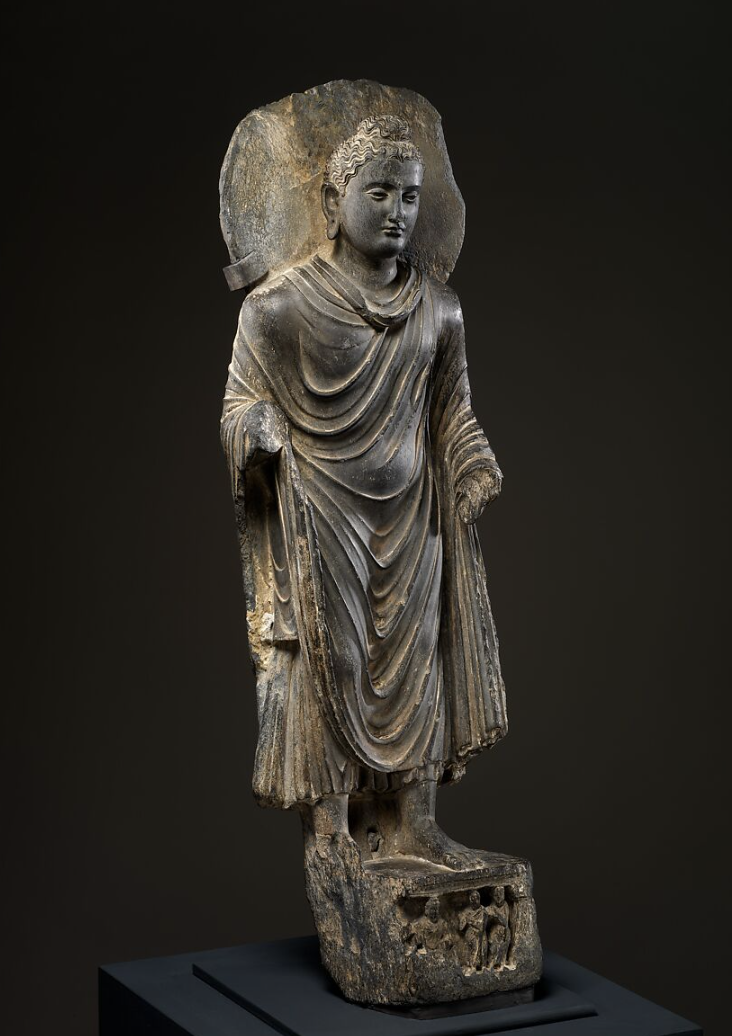
Artist: unknown
“Title:” Buddha
Date: 200s
Location: Pakistan
Details:
Ushniva
Distended earlobes
Tuft of hair
Knew hellenistic styles (drapery) but chose to keep a more serene facial expression